Fermi Paradox
description: the apparent contradiction between the high probability of extraterrestrial life and the lack of contact or evidence for such civilizations
35 results
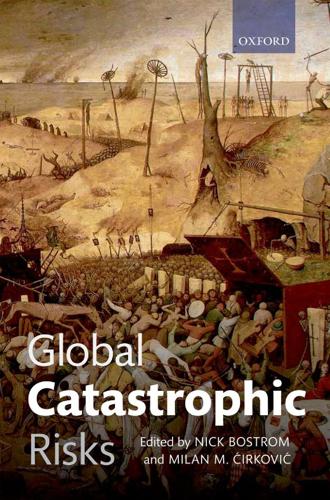
Global Catastrophic Risks
by
Nick Bostrom
and
Milan M. Cirkovic
Published 2 Jul 2008
Cirkovic I ntroduction: anthropic reasoning and global risks . . . . . . . . . . . . . 6.1 Past-future asymmetry and risk inferences . . . . . . . . . . . . . . . . . . . . . 6.2 6 . 2 . 1 A simplified model . . . . . . . . . . . . . . . . . . . . . . . . . . . . . . . . . . . . . . . 6.2.2 Anthropic overconfidence bias . . . . . . . . . . . . . . . . . . . . . . . . . . 6.2.3 Applicability class o f risks . . . . . . . . . . . . . . . . . . . . . . . . . . . . . . . . 6.2.4 Additional astrobiological information . . . . . . . . . . . . . . . . . Doomsday Argument . . . . . . . . . . . . . . . . . . . . . . . . . . . . . . . . . . . . . . . . . . . . . . 6.3 6.4 Fermi's paradox . . . . . . . . . . . . . . . . . . . . . . . . . . . . . . . . . . . . . . . . . . . . . . . . . . . . 6.4.1 Fermi's paradox and GCRs . . . . . . . . . . . . . . . . . . . . . . . . . . . . . . 6.4.2 Risks following from the presence of . 6.5 6.6 7 XV extraterrestrial intelligence . . . . . . . . . . . . . . . . . . . . . . . . . . . .. . . The Simulation Argument . . . . . . . . . . . . . . . . . . . . . . . . . . . . . . . . . . . . . . . . .
…
It is shown to depend on particular assumptions about the part of one's subjective prior probability distribution that has to do with indexical information - assumptions that one is free to reject, and indeed, arguably, ought to reject in light of their strongly counterintuitive consequences. Thus, applying the argument to our actual case may be a mistake; at least, a serious methodological criticism could be made of such an inference. 6.4 Fermi's paradox Fermi's paradox (also known as the 'Great Silence' problem) consists in the tension between ( 1 ) naturalistic origin of life and intelligence, as well as astrophysical sizes and ages of our Galaxy and (2) the absence of extraterrestrials in the Solar System, or any other traces of extraterrestrial intelligent activities in the universe. 1 0 In particular, the lack of macro engineering (or astroengineering) activities observable from interstellar distances tells us that it is not the case that life evolves on a significant fraction of Earth-like planets and proceeds to develop advanced technology, using it to colonize the universe or perform astroengineering feats in ways that would have been detected with our current instrumentation.
…
If the Great Filter is not in our past, we must fear it in our 10 It would be more appropriate to call it theTsiolkovsky-Fermi-Viewing-Hart-Tipler Paradox (for more history, see Brin, 1983; Kuiper and Brin, 1989; Webb, 2002, and references therein). We shall use the locution 'Fermi's Paradox' for the sake of brevity, and with full respect for the contributions of the other authors. 132 Global catastrophic risks (near) future. Maybe almost every civilization that develops a certain level of technology causes its own extinction. Fermi's paradox has become significantly more serious, even disturbing, of late. This is due to several independent lines of scientific and technological advances occurring during the last two decades: • The discovery of 496 extrasolar planets, as of 1 3th Novemer 2010 (for regular updates see http: / jexoplanet.euj) .
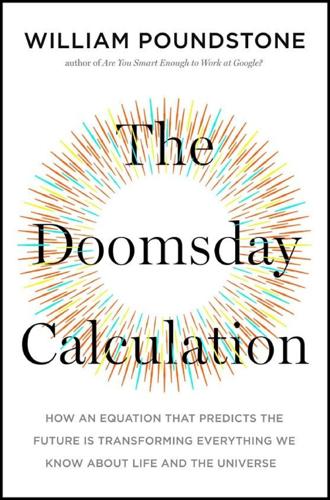
The Doomsday Calculation: How an Equation That Predicts the Future Is Transforming Everything We Know About Life and the Universe
by
William Poundstone
Published 3 Jun 2019
Von Neumann felt that this would be the practical means of deep space exploration, given that sub-light-speed trips to the stars would exceed human lifespans. The probes could do anything an inquisitive human explorer might do, and they could transmit their findings back to Earth. In recent years von Neumann’s idea and elaborations of it (by Ronald N. Bracewell and Frank Tipler, among others) have entered the Fermi paradox conversation. As computer and robotic technology advances, von Neumann’s idea is not so outlandish as it once seemed. It’s been estimated that von Neumann probes could explore the whole galaxy, at well under light speed, in as little as a million years. It wouldn’t even matter whether the species that created the first probes was still around.
…
In the latter case we might expect to find whole geological strata of von Neumann machines, documenting an extravagant binge in which they swarmed the globe, got whatever they wanted, and left. But no one has ever found a convincing alien artifact of any kind. Fermi’s question remains as great a mystery as ever. Nick Bostrom painted this word picture: life on Earth is a single data point, and the Fermi paradox is the question mark over it. The Princess in the Tower In 1971 Byurakan, Armenia, hosted a conference on extraterrestrial life that is remembered for a confrontation between celebrity astronomer Carl Sagan and biochemist Francis Crick, codiscoverer of the double helix. Their dispute was over a simple question: How likely had it been for intelligent life to arise on Earth?
…
If our one data point tells us anything, it’s that observer-species exist on time scales of hundreds of thousands of Earth years. This stands in contrast to the routine assumption of ET civilization lifespans thousands or millions of times longer than anything in the human scales of history. It is this unsupported and often unexamined assumption that is a root of the Fermi paradox, Gott believes. Better to look the modest evidence we’ve got straight in the eye. Our ongoing and valuable SETI efforts may prove to be an “emperor has no clothes” moment. Perhaps most ETs do not, after all, go on to explore many planets, achieve immense populations, and proclaim their existence to the whole universe.
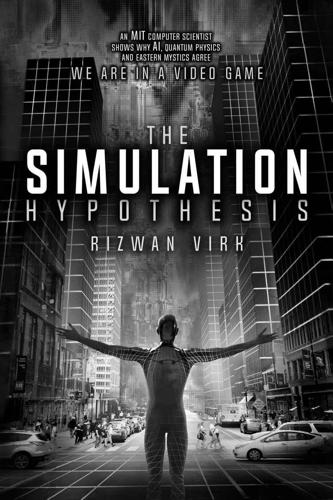
The Simulation Hypothesis
by
Rizwan Virk
Published 31 Mar 2019
Objects can be rendered anywhere in the video game so it looks like they appeared out of nowhere. Conditional rendering. Since all the rendering is done on individual computers, it's possible for one player to see an object in a scene that is not visible to other players, a process we call narrowcasting. The Fermi Paradox On the flip side of the UFO phenomenon is the Fermi Paradox, first proposed by physicist Enrico Fermi (whose notable work included the first nuclear reactor, which became the basis for the Manhattan Project). The idea goes that if life/aliens existed on so many worlds in the galaxy, given the length of time the galaxy has been around, aliens would have colonized or traveled to most of the galaxy.
…
Quests and the Simulation Hypothesis A Quest Engine for Karma Is Buddha’s Endless Wheel an Algorithm? Some Unexplained Areas: God, Angels, NDEs, and UFOs 218 God and The Creation of the Physical World God and the Afterlife Angels AI: Gods and Angels and the Simulation Hypothesis Near-Death Experiences UFOs The Fermi Paradox Jung and Synchronicity OBEs, Remote Viewing, Telepathy and Other “Unexplained” Phenomenon Part IV: Putting it All Together 245 Skeptics and Believers: Evidence of Computation 246 The Categories of Arguments/Experiments A Quick Note About Metaphysical Experiments and Consciousness The Skeptics: The Resource Argument Evidence of Conditional Rendering Experiments for Evidence of Pixels Evidence of Computation: Error-Correcting Codes Quantum Computers, Error Codes, and Quantum Entanglement Quantum Entanglement and Simulation Fractals and Evidence of Computation in Nature Simple Programs and A New Kind of Science Conclusion—the Search for Evidence of Computation The Great Simulation and Its Implications 269 Plato’s Allegory of the Cave and the Simulation Hypothesis What is the Great Simulation and Who Runs It?
…
It’s possible that we are living in one of the simulations where all the worlds are procedurally generated and there is no other form of life, but that there are other simulations where the aliens are not just plentiful but have already made themselves known to us. This is why the simulation hypothesis can be consistent with both the Fermi Paradox and with the UFO believers. It’s beyond the scope of this book to argue either side too forcefully, but by showing how the simulation hypothesis might account for them, it may help explain both sides of this debate—those who believe that not only do aliens exist but they have visited us on Earth and those who believe there are no other advanced civilizations in the galaxy!
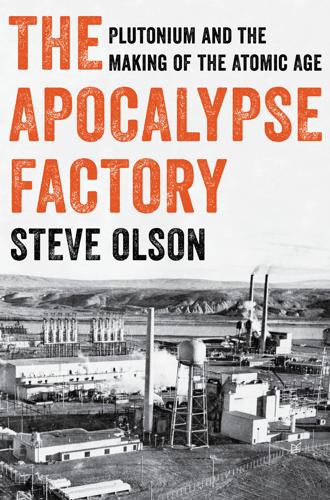
The Apocalypse Factory: Plutonium and the Making of the Atomic Age
by
Steve Olson
Published 28 Jul 2020
Since we have no good evidence of extraterrestrial visitors, the spread of intelligent beings across the galaxy must never have happened. This argument—that extraterrestrial visitors should have visited Earth but appear never to have done so—has become known as the Fermi Paradox. People have proposed dozens of solutions to the Fermi Paradox. Maybe we are the only technologically advanced civilization that has evolved in the galaxy. Interstellar travel could be too difficult or expensive for civilizations to undertake. Maybe intelligent creatures quickly realize that broadcasting their existence to the rest of the galaxy is not a good idea, or maybe we’ve been quarantined from the galactic community for some reason.
…
They might succumb to volcanic eruptions, meteoroid impacts, or exploding stars. Or, as soon as they discover nuclear energy, they blow themselves up. We have already come close to destroying ourselves several times. Reflecting on the Cuban missile crisis, President Kennedy thought that the odds of worldwide nuclear war had been at least one in three. One premise of the Fermi Paradox is that even unlikely events will happen eventually. If future international crises have at least some possibility of going nuclear, human civilization will not last for long. People may be reassured that the number of warheads on Earth has declined by three-quarters since the end of the Cold War.
…
“Local Press Response to the Atomic Bomb Announcements, August–September 1945.” In The Atomic Bomb and American Society: New Perspectives, edited by Rosemary B. Mariner and G. Kurt Pichler, 43–64. Knoxville: University of Tennessee Press. Webb, Stephen. 2015. If the Universe Is Teeming with Aliens . . . WHERE IS EVERYBODY?: Seventy-Five Solutions to the Fermi Paradox and the Problem of Extraterrestrial Life. New York: Springer. Weller, George. 2006. First into Nagasaki. New York: Crown. Wellerstein, Alex. 2015. “The First Light of Trinity.” The New Yorker (July 16). ———. 2016. “Historical thoughts on Michael Frayn’s Copenhagen.” Restricted Data: The Nuclear Secrecy Blog, February 26, http://blog.nuclearsecrecy.com/2016/02/26/historical-thoughts-michael-frayns-copenhagen. ———. 2018.
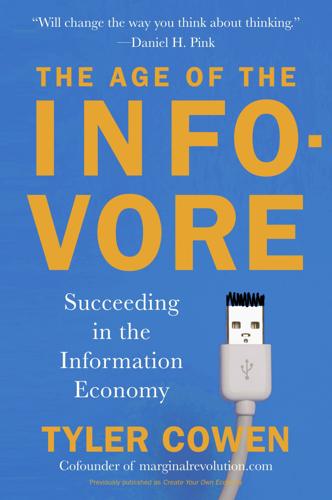
The Age of the Infovore: Succeeding in the Information Economy
by
Tyler Cowen
Published 25 May 2010
Perhaps interiority—my word for internal mental existence—is to be found not only among autistics, in new technologies, and on the internet. Interiority may be part of the very fabric of the universe around us. That sounds odd but it makes sense if you spend some time pondering what is called the Fermi Paradox. This conundrum, a popular topic of discussion among the philosophically inclined, is named after Enrico Fermi, a physicist and one of the creative forces behind the construction of the atomic bomb. If I look outside, toward the rest of the universe, I am struck by the apparent absence of signs of intelligent life.
…
In fact it’s a bit like how the cognitive strengths of autistic people, especially those who do not behave according to mainstream standards in mainstream society, are overlooked. One anonymous commentator on my blog, www.marginalrevolution.com, had an interesting hypothesis in response to a post of mine about the Fermi Paradox. He or she predicted: Sufficiently advanced civilizations probably become utterly dependent on pervasive low-latency communications protocols, such that their members need to permanently remain within a fraction of a light-second’s distance from one another. Think Facebook and mobile phones on steroids… Uploaded beings will probably live accelerated lives: they will have a much higher clock speed, because electronic or photonic devices run much faster than the chemical reactions that power an organic brain…due to speed-of-light issues, their entire civilizations may be constrained to exist within a sphere of a few hundred meters in radius or less.
…
McCloskey, The Bourgeois Virtues: Ethics for an Age of Commerce (Chicago: University of Chicago Press, 2007), 30. The idea of manipulating stars to make them visible from a distance I have borrowed from Robin Hanson. On the Doritos ad, see freakonomics.blogs.nytimes.com/2008/03/19/et-the-entrepreneur. My blog post on the Fermi Paradox can be found here: www.marginalrevolution.com/marginalrevolution/2008/05/the-fermi-parad.html. ACKNOWLEDGMENTS I have many debts, including, of course, to Kathleen Fasanella. I would like to offer particular thanks to Michelle Dawson for her comments on the manuscript and also for helping me to understand recent research on autism.
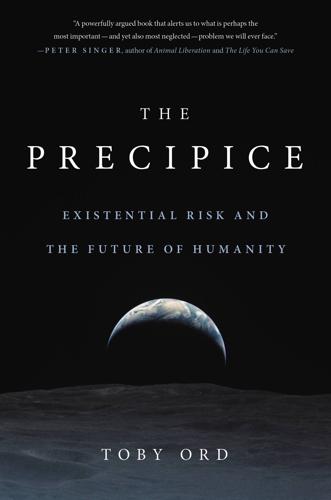
The Precipice: Existential Risk and the Future of Humanity
by
Toby Ord
Published 24 Mar 2020
“Evolution of Early Homo: An Integrated Biological Perspective.” Science, 345 (6192), 1236828. Archer, D. (2005). “Fate of Fossil Fuel CO2 in Geologic Time.” Journal of Geophysical Research, 110(C9). Armstrong, S., and Sandberg, A. (2013). “Eternity in Six Hours: Intergalactic Spreading of Intelligent Life and Sharpening the Fermi Paradox.” Acta Astronautica, 89, 1–13. Arnett, R. L. (1979). “Soviet attitudes towards nuclear war survival (1962–1977): has there been a change?” [PhD thesis]. The Ohio State University. Arrhenius, G. (2000). “An Impossibility Theorem for Welfarist Axiologies.” Economics and Philosophy, 16, 247–66.
…
Cosmos: A Personal Voyage—Episode 12: Encyclopaedia Galactica [TV Series]. PBS. Sagan, C., and Ostro, S. J. (1994). “Dangers of Asteroid Deflection.” Nature, 368(6471), 501. Sandberg, A. (n.d.). Dyson Sphere FAQ. https://www.aleph.se/Nada/dysonFAQ.html. Sandberg, A., Drexler, E., and Ord, T. (2018). Dissolving the Fermi Paradox. ArXiv, http://arxiv.org/abs/1806.02404. Schaefer, K., et al. (2014). “The Impact of the Permafrost Carbon Feedback on Global Climate.” Environmental Research Letters, 9(8), 085003, pp. 1–9. Scheffler, S. (2009). “Immigration and the Significance of Culture,” in N. Holtug, K. Lippert-Rasmussen, and S.
…
Jonathan Schell (1982, pp. 174–5) considers love in the sense of a generalization of parental or procreative love: the love with which we bring others into the world. 44 I’ve been lucky enough to get to work on this question with my colleagues at the Future of Humanity Institute: Anders Sandberg and Eric Drexler. In our paper, “Dissolving the Fermi Paradox” (Sandberg, Drexler & Ord, 2018) we quantified the current scientific understanding and uncertainties around the origin of life and intelligence. And we showed that it is a mistake to think that since there are billions of billions of stars there must be alien intelligence out there. For it is entirely plausible (and perhaps even likely) that the chance of life starting on any of them is correspondingly tiny.
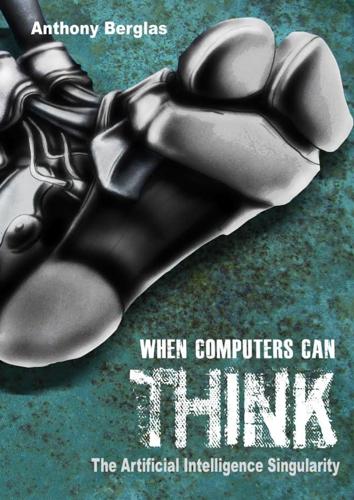
When Computers Can Think: The Artificial Intelligence Singularity
by
Anthony Berglas
,
William Black
,
Samantha Thalind
,
Max Scratchmann
and
Michelle Estes
Published 28 Feb 2015
This would enable an AGI to travel at the speed of light, possibly over vast distances. An AGI is just software; there is no need to transport anything physical. Being infected by a virus across the internet is already commonplace today and nothing physical is involved. Fermi paradox Alien Public http://www.clker.com/clipart-green-comic-alien.html An alternative view of the distant future is provided by the Fermi paradox. In 1950, physicist Enrico Fermi speculated that given that the universe is much older than the earth and contains billions of stars, there should be intelligent life elsewhere. If that is the case, how is it that we have not observed it?
…
Future Scenarios 1. Our humble servant 2. Our benevolent master 3. Dogs 4. Merging man and machine 5. It ain't necessarily so 6. Replacing people 7. Cognitive bias 8. Newsworthiness 9. Elephant in the room 10. How computers could be dangerous 11. Long term earth, plantoids 12. Space colonization 13. Fermi paradox 14. Computer thoughts 15. Non-silicon intelligence 16. Premature destruction 7. Proposed Solutions 1. Just turn it off 2. Lock it up 3. Freeze it 4. Show AGIs the light 5. Virtuous machines 6. Ethics 7. Infanticide 8. Three laws of robotics 9. Friendly AGI 10. Friendly AGI research 11. Fast take off 12.
…
If planets last a few billion years, there would be less than a one in a million chance of looking for intelligence on a planet while they still happened to exist. It is the last point that interests us. Our current human society has a one in a thousand chance of destroying life on earth each year, so it is not sustainable over geological time frames. The Fermi paradox suggests that an AGI may not be stable either, and may destroy itself in a relatively short time. Alternatively, the penultimate point may be relevant. If an AGI wanted to spread itself to another planet across the vast distances of space using radio, it would have to find planets with intelligent life to transmit to.
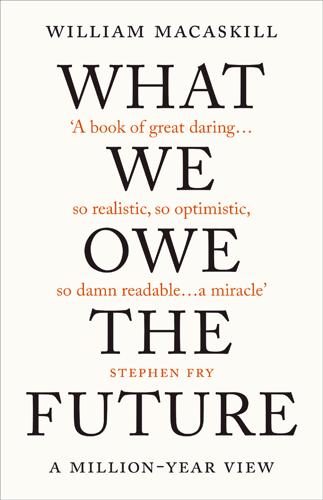
What We Owe the Future: A Million-Year View
by
William MacAskill
Published 31 Aug 2022
This argument is too quick. We don’t know how unlikely the major evolutionary transitions were, and there is reason to believe that some of them—including, potentially, the evolution of a technologically capable species—were very unlikely indeed. There are two reasons to think this. The first is based on the Fermi paradox: the paradox that, even though there are at least hundreds of millions of rocky habitable-zone planets in the galaxy, and even though our galaxy is 13.5 billion years old,80 giving ample time for an interstellar civilisation to spread widely across it, we see no evidence of alien life. If the galaxy is so vast and so old, why is it not teeming with aliens?
…
Robert Kelly (hunter-gatherers), Dr Matt Killingsworth (psychology of wellbeing), Prof. Pamela Kyle Crossley (Chinese history), Dr Jerome Lewis (hunter-gatherers), Prof. Emily Lindsey (megafauna extinction), Prof. Marc Lipsitch (epidemiology), Prof. Marlize Lombard (archaeology), Prof. Jonathan Losos (evolution of life on Earth and the Fermi paradox), Prof. Heike Lotze (climate change), Prof. Dan Lunt (climate science), Prof. Kathleen Lyons (megafauna), Prof. Andrew MacDougall (climate science), Dr David Mathers (animal welfare), Dr Linus Mattauch (climate economics), Prof. Jeff McMahan (Derek Parfit), Prof. David Meltzer (megafauna), Prof.
…
Dani Nedal (great-power war), Prof. Robert Nicholls (climate change), Dr Tessa Peasgood (subjective wellbeing), Dr Angela Perri (megafauna extinction), Prof. Osvaldo Pessoa (philosophy of science), Dr Max Popp (climate change), Prof. Dudley Poston (demography), Prof. Rachell Powell (evolution of life on Earth and the Fermi paradox), Prof. Imants Priede (zoology), Prof. Ramses Ramirez (climate change), Dr Colin Raymond (climate science), Dr Justin Ritchie (climate change), Prof. Tapio Schneider (climate change), Dr Cynthia Schuck-Paim (animal welfare), Dr Oliver Scott Curry (anthropology), Prof. Jeff Sebo (animal welfare), Dr Mikhail Semenov (climate change), Dr Rohin Shah (AI), Prof.
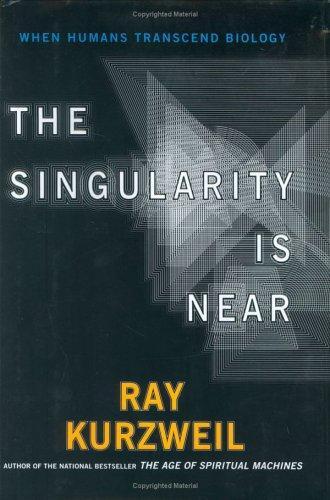
The Singularity Is Near: When Humans Transcend Biology
by
Ray Kurzweil
Published 14 Jul 2005
Decentralization . . . . on Play 253 . . . on the Intelligent Destiny of the Cosmos: Why We Are Probably Alone in the Universe 254 The Drake Equation. The Limits of Computation Revisited. Bigger or Smaller. Expanding Beyond the Solar System. The Speed of Light Revisited. Wormholes. Changing the Speed of Light. The Fermi Paradox Revisited. The Anthropic Principle Revisited. The Multiverse. Evolving Universes. Intelligence as the Destiny of the Universe. The Ultimate Utility Function. Hawking Radiation. Why Intelligence Is More Powerful than Physics. A Universe-Scale Computer. The Holographic Universe. CHAPTER SEVEN Ich bin ein Singularitarian272 Still Human?
…
Even with the thin slices of the parameter space scanned by the SETI project to date, it would be hard to miss a type II civilization, let alone a type III. If we then factor in the expectation that there should be a vast number of these advanced civilizations, it is odd that we haven't noticed them. That's the Fermi Paradox. The Drake Equation. The SETI search has been motivated in large part by astronomer Frank Drake's 1961 equation for estimating the number of intelligent (or, more precisely, radio-transmitting) civilizations in our galaxy.68 (Presumably, the same analysis would pertain to other galaxies.) Consider the SETI assumption from the perspective of the Drake formula, which states: The number of radio-transmitting civilizations = N Îfp Îne Îfl Îfi Îfc ÎfL where: N = the number of stars in the Milky Way galaxy.
…
It is odd and intriguing that we find the cosmos so silent. As Enrico Fermi asked in the summer of 1950, "Where is everybody?"73 A sufficiently advanced civilization would not be likely to restrict its transmissions to subtle signals on obscure frequencies. Why are all the ETIs so shy? There have been attempts to respond to the so-called Fermi Paradox (which, granted, is a paradox only if one accepts the optimistic parameters that most observers apply to the Drake equation). One common response is that a civilization may obliterate itself once it reaches radio capability. This explanation might be acceptable if we were talking about only a few such civilizations, but with the common SETI assumptions implying billions of them, it is not credible to believe that everyone of them destroyed itself.
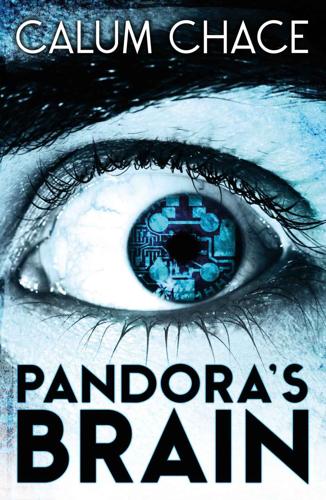
Pandora's Brain
by
Calum Chace
Published 4 Feb 2014
I mean, you’re saying we are very likely to be a simulation created by a 31st-century teenager who knocked us up for a bit of homework. He, she or it could pull the plug on us and that’s it, game over.’ Carl nodded. ‘It’s my favourite solution to the Fermi Paradox.’ He noticed Matt’s puzzled expression. ‘You know: the observation that the universe should be full of life, but we don’t see any evidence of it.’ ‘Yes yes,’ Matt said impatiently. ‘I know about the Fermi Paradox; I just don’t see how this Simulation thing resolves it.’ His eyebrows rose and his mouth formed an ‘O’ as realisation broke. ‘Oh I get it. Whoever created the sim we are in didn’t bother to programme in any aliens.’
…
Before what you call your ‘adventure’ began?’ The reminder of Carl sent Matt’s thoughts racing, and his metaphorical tongue raced after them. ‘Yes, I do. We were in a cafe, talking shit. Carl is full of shit at the best of times, although of course he would say the same about me. He was telling me that the best explanation for the Fermi Paradox is that our planet and everything we can see from it is a simulation, a game, created by some far-future . . .’ Matt stopped in his tracks. If he had eyes they would have been open almost as wide as his mouth. ‘Hold on. You’re not going to tell me . . .’ ‘Yes we are,’ the entity said, smoothly.

Human Frontiers: The Future of Big Ideas in an Age of Small Thinking
by
Michael Bhaskar
Published 2 Nov 2021
Coupled with the negative forces, shocks like climate change, pandemics or resource depletion look like classic ceiling events, where the nature of a civilisation's development bites back. Those worries of collapse we saw in Chapter 1 haunt society. The patterns of history seem to be breaking down, but it would be unwise to bank on that. There is an even darker interpretation of a downward spiral: the Fermi Paradox. Lunching with colleagues at the Los Alamos National Laboratory in 1950, the great physicist Enrico Fermi was chatting about aliens, as great physicists do. ‘But where are they?’ he asked. Given the size of the galaxy, he reasoned, an alien society should have created a space-faring galaxy-spanning civilisation.
…
, Our World in Data, accessed 10 November 2020, available at https://ourworldindata.org/us-life-expectancy-low Rosling, Hans, with Rosling, Ola, and Rosling, Anna Rönnlund (2018), Factfulness: Ten Reasons We're Wrong About The World – And Why Things Are Better Than You Think, London: Sceptre Ross, Alex (2017), The Industries of the Future, London: Simon & Schuster Rotman, David (2019), ‘AI is reinventing the way we invent’, MIT Technology Review, accessed 26 March 2019, available at https://www.technologyreview.com/2019/02/15/137023/ai-is-reinventing-the-way-we-invent/ Roy, Avik (2012), Stifling New Cures: The True Cost of Lengthy Clinical Drug Trials, New York: Manhattan Institute Sand, Shlomo (2018), The End of the French Intellectual: From Zola to Houellebecq, London: Verso Sandberg, Anders, Drexler, Eric, and Ord, Toby (2018), ‘Dissolving the Fermi Paradox’, arXiv, 1806.02404 Sarewitz, Dan (2016), ‘Saving Science’, The New Atlantis, accessed 24 December 2019, available at https://www.thenewatlantis.com/publications/saving-science Sargent, John F. (2020), ‘Global Research and Development Expenditures’, Congressional Research Service, accessed 31 May 2020, available at https://fas.org/sgp/crs/misc/R44283.pdf Sautoy, Marcus du (2017), What We Cannot Know: From Consciousness to the Cosmos, the Cutting Edge of Science Explained, London: Fourth Estate Sautoy, Marcus du (2019), The Creativity Code: How AI Is Learning to Write, Paint and Think, London: Fourth Estate Scannell, J., Blanckley, A., Boldon, H. et al. (2012), ‘Diagnosing the decline in pharmaceutical R&D efficiency’, Nature Reviews Drug Discovery, Vol. 11, pp. 191–200 Scharf, Caleb (2015), The Copernicus Complex: The Quest for Our Cosmic (In)Significance, London: Penguin Scheu, René (2019), ‘PayPal founder and philosopher Peter Thiel: “The heads in Silicon Valley have aligned themselves”’, Neue Zürcher Zeitung, accessed 9 April 2019, available at https://www.nzz.ch/feuilleton/peter-thiel-donald-trump-handelt-fuer-mich-zu-wenig-disruptiv-ld.1471818?
…
utm_source=twitterShare White, Curtis (2003), The Middle Mind: Why Americans Don't Think for Themselves, San Francisco: HarperSanFrancisco White, Curtis (2014), The Science Delusion: Asking the Big Questions in a Culture of Easy Answers, New York: Melville House Whitehead, A.N. (1925), Science and the Modern World, London: Macmillan Williams, Jeffrey J. (2018), ‘The Rise of the Promotional Intellectual’, The Chronicle of Higher Education, accessed 22 August 2018, available at https://www.chronicle.com/article/the-rise-of-the-promotional-intellectual/ Wilson, Edward O. (2017), The Origins of Creativity, London: Allen Lane Winchester, Simon (2008), The Man Who Loved China: The Fantastic Story of the Eccentric Scientist Who Unlocked the Mysteries of the Middle Kingdom, New York: HarperCollins Wolf, Martin (2019), ‘On the Technological Slowdown’, Foreign Affairs, accessed 14 July 2019, available at https://www.foreignaffairs.com/articles/2015-11-19/martin-wolf-innovation-slowdown Wong, May (2017), ‘Scholars say big ideas are getting harder to find’, Phys.org, accessed 10 October 2018, available at https://phys.org/news/2017-09-scholars-big-ideas-harder.html Wootton, David (2015), The Invention of Science: A New History of the Scientific Revolution, London: Allen Lane Wright, Robert (2000), Nonzero: History, Evolution and Human Cooperation, New York: Pantheon Books Wright, Ronald (2006), A Short History of Progress, Edinburgh: Canongate Wu, L., Wang, D., and Evans, J.A. (2019), ‘Large teams develop and small teams disrupt science and technology’, Nature 566, pp. 378–82 Wuchty, Stefan, Jones, Benjamin F., and Uzzi, Brian (2007), ‘The Increasing Dominance of Teams in Production of Knowledge’, Science, Vol. 316 No. 5827, pp. 1036–9 Xinhua (2019), ‘China to build scientific research station on Moon's south pole’, Xinhua, accessed 18 January 2021, available at http://www.xinhuanet.com/english/2019-04/24/c_138004666.htm Yueh, Linda (2018), The Great Economists: How Their Ideas Can Help Us Today, London: Penguin Viking Index ‘0,10’ exhibition 103 ‘0-I’ ideas 31 Aadhaar 265 abstraction 103 AC motor 287, 288 academia 209 Académie des sciences 47 Adam (robot) 235–6 Adams, John 211 Adler, Alfred 188 Adobe 265 Advanced Research Projects Agency (ARPA) 180, 247, 253, 296, 317 AEG 34 aeroplanes 62–6, 68–70, 71, 219 Aeschylus 3 Africa 267, 279–80, 295 age/ageing 122, 158–60, 193 AGI see artificial general intelligence Agrarian Revolution 252 agricultural production 92–3 AI see artificial intelligence Akcigit, Ufuk 193 Alexander the Great 159 Alexander, Albert 52 Alexandrian Library 4, 295, 304 algorithms 175, 185, 196, 224, 235, 245 aliens 240–1, 306, 308–9, 337 Allison, Jim 58 Alphabet 193, 225, 265, 294, 295 AlphaFold software 225–6, 227, 228–9, 233 AlphaGo software 226–7, 228, 233 AlQuraishi, Mohammed 225, 226, 229 Amazon 84–5, 214, 272 Amazon Prime Air 71 American Revolution 139 amino acids 223, 226 Ampère, André-Marie 74–5 Anaximander 35 ancestors 10–12 ancient Greeks 1–6, 7–8, 291, 303–4 Anderson, Kurt 106 Angkor Wat 43 anthrax 47–8, 51 Anthropocene 14–15 anti-reason 211–12 anti-science 211–12 antibacterials 234 antibiotics 38, 52–3, 124, 125, 217, 315 resistance to 235 Apollo missions 70, 315, 316, 317, 318 Apple 33, 85, 159, 185, 186, 193, 272, 296, 312 Aquinas, Thomas 36 AR see augmented reality archaeology 153–4 Archimedes 1–6, 7–8, 19, 27, 32, 37, 39, 291, 304 architecture 103, 115, 188 ARIA 297 Aristarchus 5 Aristotle 24, 108, 282, 304 Arkwright, Richard 25, 26, 34, 253 Armstrong, Louis 103 ARPA see Advanced Research Projects Agency art 99–104, 107–8, 176–7, 236, 321, 339 Artemis (Moon mission) 71, 218 artificial general intelligence (AGI) 226, 237–8, 249, 250, 310, 313, 330, 341 artificial intelligence (AI) 225–9, 233–41, 246–7, 248, 249–52, 262, 266, 300, 310, 312–13, 323, 329, 330, 331, 338 arts 152, 293 see also specific arts Artsimovich, Lev 147 arXiv 116 Asia 264, 267–8, 273, 275 Asimov, Isaac, Foundation 45 Astor, John Jacob 288 astronomy 30, 231, 232 AT&T 85, 181, 183, 185, 197 Ates, Sina T. 193 Athens 24, 295 Atlantis 154 augmented reality (AR) 241–2, 338 authoritarianism 112–13, 284 autonomous vehicles 71, 72, 219 ‘Axial Age’ 108 Azoulay, Pierre 317–18 Bach, J.S. 236 bacillus 46 Bacon, Francis 25, 259 bacteria 38, 46, 53 Bahcall, Safi 31 Ballets Russes 99–100 Baltimore and Ohio railway 67 Banks, Iain M. 310 Bardeen, John 182 BASF 289 Batchelor, Charles 286 Bates, Paul 226 Bayes, Thomas 289 Beagle (ship) 36 Beethoven, Ludwig van 26 Beijing Genomics Institute 257, 294–5 Bell Labs 180–4, 186–8, 190, 206, 214, 217, 289, 296, 322 Benz, Karl 68, 219, 330 Bergson, Henri 109 Bessemer process 80 Bezos, Jeff 71, 326 Bhattacharya, Jay 201, 202, 321 Biden, Joe 59 Big Bang 117, 174, 181 Big Big Ideas 79–80 big ideas 5, 8, 11, 13–19 adoption 28 and an uncertain future 302–36 and art 99–103 artificial 223–38 and the Big Ideas Famine 13 and bisociation 36 blockers to 17–18 and breakthrough problems 46–73, 77, 86, 98, 222, 250, 301 and the ‘burden of knowledge’ effect 154–65, 175, 178, 235, 338 and business formation 95 ceiling 18 conception 37 definition 27–8, 40–1 Enlightenment 132–40, 136–40 era of 109–10 erroneous 176 evidence for 222, 223–54 execution 37 ‘fishing out’ mechanism 152 future of 45, 98, 302–36, 337–43 harmful nature 41–2 how they work 23–45 and the Idea Paradox 178–9, 187, 191, 217, 226, 250, 254, 283–4, 301, 312, 342 and the Kardashev Scale 337–43 long and winding course of 4, 5, 35–8, 136 and the low-hanging fruit paradox 149–54, 167, 178 and luck 38–9 moral 136, 138 nature of 169–72 necessity of 41–3 need for 42–3 normalisation of 171–5, 178 originality of 28 paradox of 143–79 and patents 97 process of 37–8 purchase 37–8 and resources 128 and rights 132–40 and ‘ripeness’ 39 and short-termism 192 slow death of 106–7 slowdown of 98 society's reaction to 216 and specialisation 156, 157–8 today 21–140 tomorrow 141–343 big pharma 31, 60, 185, 217–18, 226 Big Science 118–19 Bill of Rights 137 Bingham, Hiram 153 biology 243–8, 300 synthetic 245–6, 251, 310, 329 BioNTech 218, 298 biotech 195–6, 240, 246, 255–8, 262, 266, 307 bisociation 36 Björk 104 Black, Joseph 26 ‘black swan’ events 307, 310 Bletchley Park 180, 296 Bloom, Nick 91, 92, 93 Boeing 69, 72, 162, 165, 192, 238 Bohr, Niels 104, 118, 159 Boltsmann, Ludwig 188 Boston Consulting Group 204 Botha, P.W. 114 Bowie, David 107 Boyer, Herbert 243 Boyle, Robert 232 Brahe, Tycho 36, 229, 292 brain 166, 246–8, 299–300 collective 299, 300–1 whole brain emulations (‘ems’) 248–9, 341 brain drains 197 brain-to-machine interfaces 247–8 Branson, Richard 71 Brattain, Walter 182 Brazil 266–7, 268, 279 breakthrough organisations 294–9 breakthrough problems 46–73, 77, 86, 98, 222, 234, 250, 301 breakthroughs 2–5, 27–8, 32–7, 41, 129, 152, 156 and expedition novelty 333 hostility to 187 medical 58–60 missing 175 near-misses 160 nuclear power 145 price of 87–98 and short-termism 192 slowdown of 87, 94 society's reaction to 216 and universities 204 see also ‘Eureka’ moments breast cancer 94 Brexit referendum 2016: 208 Brin, Sergey 319, 326 Britain 24, 146, 259, 283, 297 see also United Kingdom British Telecom 196 Brunel, Isambard Kingdom 67 Brunelleschi 232 Bruno, Giordano 216 Buddhism 108, 175, 264–5, 340 Buhler, Charlotte 188–9 Buhler, Karl 188–9 ‘burden of knowledge’ effect 154–65, 175, 178, 235, 338 bureaucracy 198–87, 280–1 Bush, George W. 211 Bush, Vannevar 168, 314–15, 317 business start-ups 95–6 Cage, John 104 Callard, Agnes 111 Caltech 184 Cambridge University 75, 76, 124, 235–6, 257, 294–6 canals 67 cancer 57–61, 76, 93–4, 131, 234, 245, 318 research 59–61 capital and economic growth 88 gray 192, 196 human 275, 277 capitalism 36, 111–13, 186, 189, 191–8 CAR-Ts see chimeric antigen receptor T-cells carbon dioxide emissions 220–1 Cardwell's Law 283 Carey, Nessa 244 Carnap, Rudolf 189 Carnarvon, Lord 153 cars 289 electric 71 flying 71 Carter, Howard 153 Carter, Jimmy 58 Carthage 3, 43 Cartright, Mary 163 CASP see Critical Assessment of Protein Structure Prediction Cassin, René 135 Catholic Church 206, 230 Cavendish Laboratory 76, 294 Cell (journal) 234 censorship 210–11 Census Bureau (US) 78 Centers for Disease Control 212 Cerf, Vint 253 CERN 118, 233, 239, 252, 296 Chain, Ernst 52, 60, 124 Champollion, Jean-François 155 Chang, Peng Chun 135 change 10–13, 18–19, 24 rapid 30, 32 resistance to 222 slowdown 85 chaos theory 163 Chaplin, Charlie 104 Chardin, Pierre Teilhard de 300 Charpentier, Emmanuelle 244, 256 chemistry 49, 56, 104, 117, 118, 124, 149–50, 159, 241, 244 chemotherapy 57 Chicago 10 chicken cholera 46 chimeric antigen receptor T-cells (CAR-Ts) 58, 61 China 15, 25, 71–2, 111, 112, 138, 208, 213, 216, 255–64, 265, 266, 267, 268, 275, 277, 279, 280, 283, 284–5, 312, 313, 314, 319, 328 Han 259, 260 Ming 284, 308, 309 Qing 260 Song 24, 259–60, 306 Tang 259–60 Zhou 259 Christianity 108, 303–4, 340 Church, George 245 cities 270–2, 308–9, 340 civilisation collapse 42–4 decay 187 cleantech 195 climate change 219–21, 284, 313–14, 338 clinical trials 218 cliodynamics 339 coal 23, 24, 26, 80, 220 Cocteau, Jean 101 cognitive complexity, high 332–3 cognitive diversity 281–3 Cognitive Revolution 252 Cohen, Stanley N. 243, 244 collective intelligence 339 collectivism 282 Collison, Patrick 117, 272 colour 75 Coltrane, John 104 Columbian Exchange 177 Columbus 38 comfort zones, stepping outside of 334 communism 111, 133, 134, 173, 217, 284 companies creation 95–6 numbers 96–7 competition 87, 283 complacency 221–2 complexity 161–7, 178, 204, 208, 298, 302, 329 high cognitive 332–3 compliance 205–6 computational power 128–9, 168, 234, 250 computer games 107 computers 166–7, 240, 253 computing 254 see also quantum computing Confucianism 133, 259 Confucius 24, 108, 109, 282 Congressional Budget Office 82 connectivity 272 Conon of Samos 4 consciousness 248, 340 consequences 328–9 consolidation, age of 86 Constantine 303 convergence 174, 311–12 Copernicus 29, 30, 41, 152, 171, 229, 232, 292 copyright 195 corporations 204–5 cosmic background microwave radiation 117, 181 cotton weaving, flying shuttle 24–5 Coulomb, Charles-Augustin de 74–5 counterculture 106 Covid-19 (coronavirus) pandemic 13, 14, 15, 55, 86, 113–14, 193, 202, 208, 212, 218, 251–2, 263, 283–4, 297–8, 309, 318, 327 vaccine 125, 245 Cowen, Tyler 13, 82, 94–5, 221 cowpox 47 creativity 188, 283 and artificial intelligence 236 crisis in 108 decrease 106–8 and universities 203 Crete 43 Crick, Francis 119, 296 CRISPR 243, 244, 251, 255–8, 299 Critical Assessment of Protein Structure Prediction (CASP) 224–6, 228 Cronin, Lee 242 crop yields 92–3 cultural diversity 281–3 cultural homogenisation 177 cultural rebellion 106–7 Cultural Revolution 114, 305 culture, stuck 106 Cunard 67 Curie, Marie 104, 144, 203, 289–90, 332 Daniels, John T. 62–3 Daoism 259 dark matter/energy/force 338 DARPA see Defense Advanced Research Projects Agency Darwin, Charles 34, 35–6, 37–8, 41, 77, 109, 118, 171, 289 Darwin, Erasmus 35 data 233 datasets, large 28 Davy, Sir Humphrey 149, 150 Debussy, Claude 100–1 decision-making, bad 43–4 Declaration of Independence 1776: 137 Declaration of the Rights of Man and Citizen 1789: 137 DeepMind 225–9, 296 Defense Advanced Research Projects Agency (DARPA) 315 democracy 111–12 Deng Xiaoping 261 deoxyribonucleic acid (DNA) 119, 223–4, 243, 251, 255, 339 DNA sequencing 56 Derrida, Jacques 109 Deutsch, David 126, 203 Diaghilev, Sergei 99–101 Diamond, Jared 42 Digital Age 180 digital technology 241–2, 243 diminishing returns 87, 91, 94, 97, 118, 123, 126, 130–1, 150, 161, 169, 173, 222, 250, 276, 285, 301 Dirac, Paul 159–60 disruption 34, 96, 109, 119, 157 diversity, cultural 281–3 DNA see deoxyribonucleic acid Dorling, Danny 171 Doudna, Jennifer 244, 251, 256 Douglas, Mary 290 Douthat, Ross 14, 106 drag 65 Drake equation 306 Drezner, Daniel 214 drones, delivery 71, 72 Drucker, Peter 189 drugs 55–7, 124, 235 Eroom's Law 55, 57, 61, 92–3, 119, 161, 234, 245, 338 and machine learning 234 research and development 55–7, 61, 92–4, 119, 161, 172–3, 217–18, 234, 245, 315, 338 see also pharmaceutical industry Duchamp, Marcel 103, 171 DuPont 184 Dutch East India Company 34 Dyson, Freeman 120 dystopias 305–8 East India Company 34 Easter Island 42–3 Eastern Europe 138 ecocides 42–3 economic growth 240, 272, 273, 316 endogenous 94 and ideas 88, 89–92, 95 process of 87–8 slowdown 82, 83, 84, 85, 178 economics 87–9, 98, 339, 340 contradictions of 87 Economist, The (magazine) 188 Edelman annual trust barometer 209 Edison, Thomas 183–4, 286–9, 290, 293 education 127, 277, 324–8 Einstein, Albert 11, 29, 74, 77, 104, 109, 117, 119, 124, 159–60, 203, 332 Eisenstein, Elizabeth 231 Eldredge, Niles 30 electric cars 71 electricity 11, 74–7, 81, 286–7, 289 electromagnetic fields 76 electromagnetic waves 75, 76 elements (chemical) 149–50 Elizabeth II 144–5 employment 204–5 Encyclopædia Britannica 97, 128, 155 ‘End of History’ 112 energy 337–8, 341–2 availability 85 use per capita 85 see also nuclear power engineering 243 England 25, 144–5, 309 Englert, François 118 Enlightenment 130, 136–40, 252 see also Industrial Enlightenment; neo-Enlightenment Eno, Brian 295 entrepreneurship, decline 96 epigenetics 164 epigraphy 236–7 epistemic polarisation 210 Epstein, David 334 Eratosthenes 5 Eroom's Law 55, 57, 61, 92–3, 119, 161, 234, 245, 338 ethical issues 256–7 Euclid 3, 304 ‘Eureka’ moments 2–5, 35, 36–7, 129, 163 Europe 95, 247, 258–60, 268, 268, 271, 283, 304, 308 European Space Agency 71 European Union (EU) 206, 216, 262, 266 Evans, Arthur 153 evolutionary theory 30, 35–6 expedition novelty 333 experimental spaces 296–8 Expressionism 104 Facebook 34, 159, 170, 197 Fahrenheit 232 failure, fear of 335 Faraday, Michael 75 FCC see Future Circular Collider FDA see Food and Drug Administration Federal Reserve (US) 82 Feigenbaum, Mitchell 163 fermentation 49 Fermi, Enrico 143, 159, 306 Fermi Paradox 306 Fernández-Armesto, Felipe 109 fertility rates 269 Feynman, Richard 77, 166, 332 film 104, 106–7, 108, 115 financialism 191–8, 206–7, 214, 217, 219 Firebird, The (ballet) 99–100 ‘first knowledge economy’ 25–6 First World War 54, 99, 104, 187, 188–9 Fisk, James 182 Fleming, Alexander 38, 52, 60, 332 flight 36, 62–6, 68–70, 71, 335 Flint & Company 64 flooding 220, 284 Florey, Howard 52, 60, 124, 332 Flyer, the 62–4, 66, 72 Foldit software 225 Food and Drug Administration (FDA) 55, 60, 93, 212 food supply 81 Ford 34, 253 Ford, Henry 68, 104, 219 Fordism 81 Foucault, Michel 110 Fraenkel, Eduard 124 France 49–51, 54, 64, 67, 95, 279, 309, 332 franchises 31 Franklin, Benjamin 119, 211 Frederick the Great 292 French Revolution 137, 275 Freud, Sigmund 34, 36, 77, 104, 171, 188, 190, 216 frontier 278–9, 283–4, 302, 310–11 Fukuyama, Francis 111–12 fundamentalism 213 Future Circular Collider (FCC) 239 futurology 44 Gagarin, Yuri 70 Galen 303 Galileo 206, 231, 232, 291, 322 Galois, Évariste 159 GDPR see General Data Protection Regulation Gell-Mann, Murray 77 gene editing 243–4, 251, 255–8 General Data Protection Regulation (GDPR) 206 General Electric (GE) 33, 184, 265, 288, 333 General Motors 289 Generation Z 86 genes 223–4 genetic engineering 243–4, 251, 253, 255–8 genetic science 163–4, 202 genius 26 genome, human 119, 202, 244, 255–7, 296, 313 genome sequencing 243–4 germ theory of disease 50–1, 53 Germany 54, 95, 96, 279, 283, 292, 332 Gesamtkunstwerk 99 Gibson, William 241 Glendon, Mary Ann 135 global warming 147 globalisation 177 Go 226–7 Gödel, Kurt 41, 168 Goldman Sachs 197 Goodhart's Law 199 Google 34, 85, 185, 197, 240, 272, 318 20 per cent time 319–20 Google Glass 241 Google Maps 86 Google Scholar 116 Google X 294 Gordon, Robert 13, 83, 94–5 Gouges, Olympe de 137 Gould, Stephen Jay 30 Gove, Michael 208 government 205, 207, 214, 216, 252, 267–8, 297 funding 185–6, 249, 252, 314–19, 321 GPT language prediction 234, 236 Graeber, David 13–14, 111 grants 120, 185–6, 195, 202, 316, 317, 319, 321–3 gravitational waves 117–18, 119 Great Acceleration 309–10 Great Convergence 255–301, 339 Great Disruption 96 Great Enrichment (Great Divergence) 23, 26, 258 Great Exhibition 1851: 293, 309 Great Stagnation Debate 13–14, 16, 17, 45, 72, 82–3, 87, 94–6, 129, 150, 240, 279, 338 Greenland 42 Gropius, Walter 103 Gross Domestic Product (GDP) 82, 90, 128, 278, 318 GDP per capita 23, 78, 82 growth cultures 25 growth theory, endogenous 88–9, 94 Gutenberg, Johannes 36 Guzey, Alexey 200, 322 Haber, Fritz 332 Haber-Bosch process 289 Hadid, Zaha 152 Hahn, Otto 144 Hamilton, Margaret 316 Harari, Yuval Noah 114–15, 236 Harris, Robert 307 Harvard Fellows 200 Harvard, John 156 Harvey, William 34, 291–2 Hassabis, Demis 229, 233 Hayek, Friedrich 189 Hegel, Georg Wilhelm Friedrich 36 Heisenberg, Werner 41, 159, 168, 332 heliocentric theory 5, 29, 118, 232, 304 helium 145 Hendrix, Jimi 105 Henry Adams curve 85 Hero of Alexandria 39 Herper, Matthew 55 Hertz, Heinrich 76 Herzl, Theodor 188 Hesse, Herman 307 Hieron II, king of Syracuse 1–2 Higgs, Peter 118 Higgs boson 117–18, 119, 239 Hinduism 133 Hiroshima 144 Hitler, Adolf 138, 188 Hodgkin, Dorothy 124, 332 Hollingsworth, J.
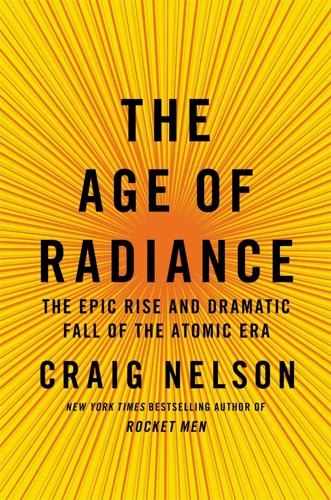
The Age of Radiance: The Epic Rise and Dramatic Fall of the Atomic Era
by
Craig Nelson
Published 25 Mar 2014
One of his colleagues called him “completely self-confident, but wholly without conceit,” and onetime pupil and lifetime friend Emilio Segrè said Enrico was “a steamroller that moved slowly but knew no obstacles.” Enrico was a titan of Roman society whose membership in the Royal Academy of Italy came with both a princely salary and the title Your Excellency. Many decades later, astronomer Carl Sagan summed up his legacy: “There is a Fermi Sea, a Fermi Energy, a Fermi Paradox, Fermi Statistics . . . a Fermi class of elementary particles, a Fermi Constant, a Fermi Surface, a Fermi Mechanism (for the acceleration of cosmic rays), a Fermi Age (neutron diffusion), a Fermi unit of distance (which is roughly the size of a nucleon), two Fermi Golden Rules, a Fermi Prize, a Fermi Institute, a Fermi High School, a Fermi National Laboratory, and a chemical element named after Fermi. . . .
…
Leo Szilard was always in a hurry. . . . If he saw the president of the United States meeting with the president of Soviet Russia, Leo would probably introduce himself and begin asking pointed questions.” The mysteries of Budapest. While working at the University of Chicago, Fermi brought up the question now known as the Fermi paradox: Why hadn’t alien life-forms noticed a planet as beautiful as our earth? “They should have arrived here by now. So, where are they?” he asked. Szilard retorted, “They are among us. But they call themselves Hungarians.” This was a twist on a famous assertion of von Kármán’s, that the reason so many natives of Pest—which means “furnace”—became internationally acclaimed scientists was that they were Martians (he included Zsa Zsa Gabor in this extraterrestrial cotillion).
…
The Centers for Disease Control has reported that every person born after 1951 in the continental United States has been exposed to radioactive fallout from the Nevada Test Site, that “all organs and tissues of the body have received some radiation exposure,” and of the nearly six hundred thousand Americans dying of cancer every year, eleven thousand will die from the remnants of bomb tests. During the last years of his life, Enrico Fermi repeatedly asked the question now known as the Fermi paradox: “Where is everybody?” He was asking why, despite the great size and age of the universe, no extraterrestrial civilizations had been discovered. At times, he believed that the answer might be nuclear annihilation. Journalist Adam Gopnik: “Spengler may have been right about the foreordained blossoming and decay of civilizations, on a far more cosmic scale than he could’ve imagined: once a society reaches to sun power, and makes nuclear weapons, it destroys itself.

Accelerando
by
Stross, Charles
Published 22 Jan 2005
These wormholes, they're a low-bandwidth link compared to the minds they're hooking up to." He blurs in front of her, unable to stay still and unable to look away from the front panel. Excitement or agitation? Su Ang can't tell. With Pierre, sometimes the two states are indistinguishable. He gets emotional easily. "I think we have the outline of the answer to the Fermi paradox. Transcendents don't go traveling because they can't get enough bandwidth – trying to migrate through one of these wormholes would be like trying to download your mind into a fruit fly, if they are what I think they are – and the slower-than-light route is out, too, because they couldn't take enough computronium along.
…
Looking down over her head, at the cat in her lap, he's sure he sees it narrow its eyes at him. Funny, he thinks, we're talking about jumping down a rabbit hole and trusting whoever lives at the other end with our personalities. After seeing the Wunch. Does this make sense? "Forgive, please, but am not stupid," says Boris. "This is Fermi paradox territory, no? Instantaneous network exists, is traversable, with bandwidth adequate for human-equivalent minds. Where are alien visitors, in history? Must be overriding reason for absence. Think will wait here and see what comes back. Then make up mind to drink the poison kool-aid." "I've got half a mind to transmit myself through without a back-up," says someone else – "but that's okay; half a mind is all we've got the bandwidth for."
…
Sadeq's focus, his driving obsession in theology, is a program of reappraisal of eschatology and cosmology. Here in a tower of white sun-baked clay, on an endless plain that exists only in the imaginary spaces of a starship the size of a soft drink can, the priest spends his processor cycles in contemplation of one of the most vicious problems ever to confront a mujtahid – the Fermi paradox. (Enrico Fermi was eating his lunch one day, and his colleagues were discussing the possibility that sophisticated civilizations might populate other worlds. "Yes," he said, "but if this is so, why haven't they already come visiting?") Sadeq finishes his evening devotions in near silence, then stands, stretches as is his wont, and leaves the small and lonely courtyard at the base of the tower.

The Uninhabitable Earth: Life After Warming
by
David Wallace-Wells
Published 19 Feb 2019
The natural lifespan of a civilization may only be several thousand years long, and the lifespan of an industrial civilization conceivably only several hundred. In a universe that is many billions of years old, with star systems separated as much by time as by space, civilizations might emerge and develop and then burn themselves up simply too fast to ever find one another. The Fermi paradox has also been called “the Great Silence”—we bellow out into the universe and hear no echo, and no reply. The iconoclastic economist Robin Hanson calls it “the great filter.” Being filtered, the theory goes, are whole civilizations, enclosed by global warming like bugs in a net. “Civilizations rise, but there’s an environmental filter that causes them to die off again and disappear fairly quickly,” as the charismatic paleontologist Peter Ward—among those responsible for discovering that the planet’s mass extinctions were caused by greenhouse gas—told me.
…
Schmidt, “The Silurian Hypothesis: Would It Be Possible to Detect an Industrial Civilization in the Geological Record?” International Journal of Astrobiology, April 16, 2018, https://doi.org/10.1017/S1473550418000095. anyone trying to “solve” the Drake equation: One especially notable effort was Anders Sandberg’s et al., “Dissolving the Fermi Paradox,” Future of Humanity Institute, Oxford University, June 6, 2018, https://arxiv.org/pdf/1806.02404.pdf. “Now I am become death”: An account of this—including the fact that Oppenheimer first quoted the line twenty years after the event—appears in Kai Bird and Martin J. Sherwin, American Prometheus: The Triumph and Tragedy of J.
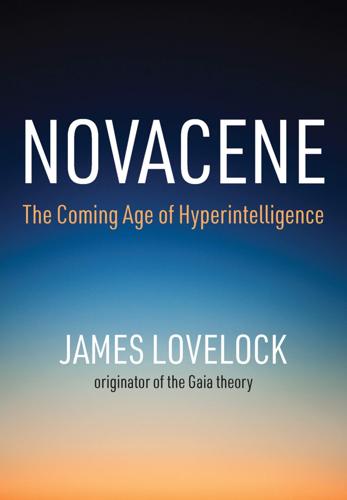
Novacene: The Coming Age of Hyperintelligence
by
James Lovelock
Published 27 Aug 2019
In short, aliens should be swarming about the place – but they aren't. As with interstellar travel, so with hyperintelligence. If we do give birth to the cyborgs, does it not imply that we really are the first and only intelligence in the universe? Had there been a predecessor like us, the artificial intelligence they created would long ago have answered Fermi's paradox. If someone like us had appeared before and then proceeded to artificial intelligence, this new physical intelligence might now dominate the universe. Surely it would be easy for astronomers to detect its presence. It would be everywhere. Once again we must remember the time involved in producing understanding creatures.

Wireless
by
Charles Stross
Published 7 Jul 2009
A couple of years later, some of the questions raised by this story came back to haunt me in a different context as I began writing “The Atrocity Archive.” But I can’t maintain that level of existential bleakness at greater length (which is probably a good thing) . . . MAXOS LETTERS TO NATURE MA XO SIGNALS: A NEW AND UNFORTUNATE SOLUTION TO THE FERMI PARADOX Caroline Haafkens and Wasiu Mohammed Department of Applied Psychology, University of Lagos, Nigeria In the three years since the publication and confirmation of the first microwave artifact of xenobiological origin, and the subsequent detection of similar MAXO signals, interdisciplinary teams have invested substantial effort in object frequency analysis, parsing, symbolic encoding, and signal processing.
…
Some preliminary syntax analysis delivered promising results[4] but appears to have foundered on high-level semantics. It has been hypothesized that the transformational grammars employed in the MAXO payloads are variable, implying dialectiza tion of the common core synthetic language[4]. The newfound ubiquity of MAXO signals makes the Fermi Paradox—now nearly seventy years old—even more pressing. Posed by Enrico Fermi, the paradox can be paraphrased as: if the universe has many technologically advanced civilizations, why have none of them directly visited us? The urgency with which organizations such as the ESA and NASDA are now evaluating proposals for fast interstellar probes, in conjunction with the existence of the MAXO signals, renders the nonappearance of aliens incomprehensible, especially given the apparent presence of numerous technological civilizations in such close proximity.
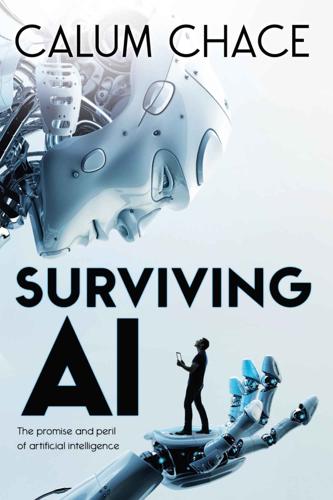
Surviving AI: The Promise and Peril of Artificial Intelligence
by
Calum Chace
Published 28 Jul 2015
In fact there is no good reason to suppose that we are anywhere near the upper limit of the intelligence spectrum – if there is such a limit. It may very well be that there could be beings with intelligence as far ahead of ours as ours is ahead of an ant. Perhaps there are such beings somewhere in the universe right now, in which case the fascinating Fermi Paradox asks why we see no evidence of them. And perhaps we are on the way to creating one. Consciousness There is no need to pre-judge whether a superintelligence would be conscious or self-aware. It is logically possible that a mind could have volition, and be greatly more effective than humans at solving all problems based on information it could learn, without having the faintest notion that it was doing so.
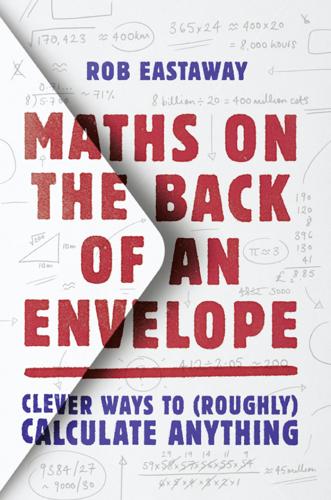
Maths on the Back of an Envelope: Clever Ways to (Roughly) Calculate Anything
by
Rob Eastaway
Published 18 Sep 2019
Sometime not long after the end of the Second World War, Fermi and some other scientists were having a conversation, and the subject turned to extraterrestrial beings. As the story goes, Fermi suddenly asked the question: ‘So, where is everybody?’ – by which he meant, given the billions of stars in the galaxy, one of which must surely have developed advanced life forms, why hadn’t we been invaded by aliens yet? His question became known as the Fermi Paradox. Several years later, the astrophysicist Frank Drake came up with an equation for expressing the number (N) of intelligent, communicating civilisations that are in our galaxy at any one time. His equation was this: where: R* is the average number of stars that form each year; np is the average number of planets per star; fL is the fraction of those planets that develop life; fi is the fraction of planets with life that develop intelligent life; fc is the fraction of civilisations that develop communication technology; L is the number of years that communicating civilisations survive.
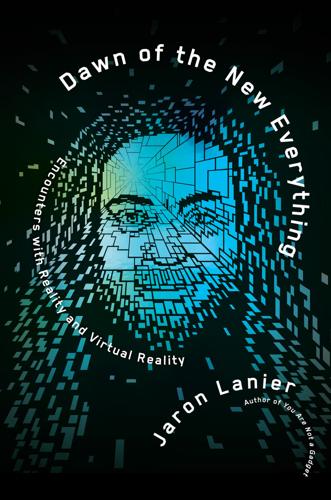
Dawn of the New Everything: Encounters With Reality and Virtual Reality
by
Jaron Lanier
Published 21 Nov 2017
That is, bits have a meaning based on human experience when they are put into a computer, or when they are extracted, but absent human culture and interpretation, they’re meaningless. Another way to state the case is that to an alien, there’s no difference between a smartphone and a lava lamp. Each gets hot as patterns evolve in it. I find support for this point of view in the Fermi Paradox. How is it possible that we don’t see evidence of other life in the universe when we sift through the night sky? Maybe because life is hard to recognize if you don’t share a culture. We see noise where aliens might see literature.17 Once you see that bits never take on intrinsic meaning, it becomes easier to make computers better, because then the only criterion left is to design for people.
…
ethical filtering eugenics Evergreen College everything dreams of previous, drugs as evolution Exorcist, The (film) experiences, as allegories experimental music experimental programming language eye contact Eyematic EyePhone EyePhone HRX eyes face blindness (prosopagnosia) Facebook facial expression facial recognition facial tracking Fairness Doctrine Fakespace Fantastic magazine FBI “Feelies” Feiner, Steve feminist game designs Fermi Paradox Feynman, Richard field of view figure eight sensorimotor loop financial incentives Finite and Infinite Games (Carse) Fisher, Scott fitness bands flight simulators floating holograms flute flying saucers force feedback Ford Motors forgeries form factor Forster, E.M. FORTH Fortran Foster, Scott 4chan 4-D VR playthings FOV2GO France free information free software free speech free will French intelligence French investors Fresnel optics Freud, Sigmund Freud avatars frontier, end of Fuchs, Henry Fuller, Buckminster Furness, Tom, xviiin futurism Gabriel, Peter Gaga, Lady Gal, Ran gall bladder procedure game hackers gamelan Game of Life Gamergate game theory gaming culture Garcia, Annabelle Garcia, Jerry gatekeeping Gell-Mann, Murray general purpose simulators general relativity Generation X genetics genomics geodesic domes geometry Germany Gernsback, Hugo Ghana Gibson, William Gilliam, Terry Gilmore, John global virtual space glove-based manipulation goats Gödel, Escher, Bach (Hofstader) Goelz, Dave Goffman, Ken (R.
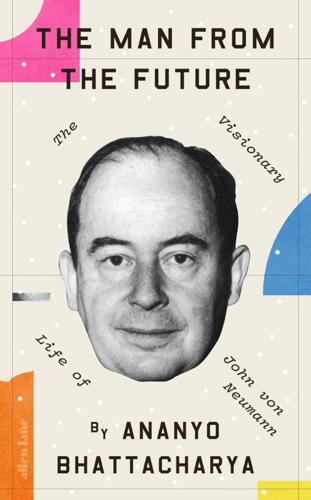
The Man From the Future: The Visionary Life of John Von Neumann
by
Ananyo Bhattacharya
Published 6 Oct 2021
Greta Thunberg, 2019 Over lunch in Los Alamos in 1950, Enrico Fermi suddenly asked his friends, ‘But where is everybody?’ Everyone burst out laughing. Fermi had been thumbing through a copy of the New Yorker and come across a cartoon blaming the recent disappearances of dustbins on extra-terrestrials. The ‘Fermi Paradox’ is the name now given to the conundrum of why the human race has not made contact with any alien species despite some estimates suggesting they should be legion in our galaxy. Thirty years later, Frank Tipler ‘solved’ this paradox.1 Given that at least some intelligent beings would be expected to develop self-replicating machines, Tipler asks, and the billions of years such von Neumann probes would have to criss-cross the galaxy, why has there been no trace of one detected in our solar system?
…
Presper 107, 108, 124, 125–8, 130, 308–9n53 Eckert–Mauchly Computer Corporation 308–9n53 economic growth 148–9, 151, 172 economics anti-trust laws 173 coalitions 174–5 Expanding Economy Model 148–9, 151–2 and game theory 151–62, 175–9 general equilibrium theory 172–3 monopolies 173–5 Morgenstern’s disillusionment with 157, 158–9 Theory of Games and Economic Behavior and 151, 15872–779 utility theory 160–2 zero-sum games 145–148, 160, 163–169, 172, 176, 192, 194 Edgeworth, Francis 153 EDVAC report see First Draft of a Report on the EDVAC (von Neumann) 121–7 patent dispute 125–6, 127–8 Einstein, Albert xi, xii, xiv, 19, 22, 29, 30, 32, 35, 45, 46, 47–8, 54–55, 60, 64, 68–9, 118, 155, 213 and Nash 199–200 at Princeton 68, 69, 155 reaction to Bohm 54–5 Eisenhower, Dwight 209, 212, 277, 277 Ellery, Alex 226, 266, 268 Ellsberg, Daniel 222 Engel, Ferenc 74–5 ENIAC xiii, 1054–11, 106, 120, 126, 127–8 comparison to EDVAC design 123, 124 construction 108–9 contract 108 conversion to stored-program computer 130–5, 135–6, 309–10n68 cost 108 drawbacks 109–110 electric circuitry 105 first job 109 and Manhattan Project 109 Monte Carlo simulations 133–8 origins 106–8 size 106 storage capacity 123, 124 Super calculations 137 user manual 109 VN learns of 105–6 VNs contribution 109, 110–11 VNs interest in 109–10 Enola Gay 94–6 EPR paradox, the 55–7 Epstein, Robert 275 ergodic hypothesis, the 69, 300n4 Erhard, Hermann 26 Erickson, Paul 212 Euclid flaws in Elements 16–19 parallel postulate 17–18, 17 Everett, Hug, III 57–8 evolution 179–81, 229, 253–4, 255, 257, 258, 274 evolutionary game theory 179, 180–81 evolutionary theory 180 Expanding Economy Model 148–9, 151–2 expanding shock wave maths 73 explosions, hydrodynamics 73 extra-terrestrial life 281–2 Facebook 173 Farrell, Thomas 92 Fat Man xiii, 89, 92, 95–6 Federal Communications Commission, communications licences 177–8 Federation of American Scientists 223 Fejér, Lipót (Leopold) 6–7, 8, 11–12 Fekete, Michael (Mihály) 12, 13 Fellner, William (Vilmos) 154, 292n22 Ferenczi, Sándor 6–7 Fermat’s last theorem 112–13, 305n22 Fermi, Enrico 78, 91–2, 281 Fermi Paradox 281 Feynman, Richard 68, 82, 85, 269 Fields Medal xiii, 62 firing tables 105, 107–8, 11009 First Draft of a Report on the EDVAC (von Neumann) 111, 121–7 First World War 3, 13–5, 72–3 first-order logic 111–12, 120, 304n19, 305n23, 307n37 Fischer, Ernst 38–9 fission 77–8 fixed-point theorem 148–9, 150, 151, 201 Flexner, Abraham 68, 118 Flood, Merrill 204–8 flowchart diagrams 134–5 Ford 173 forecasting 153–4 Fortune (magazine) 174, 283 fractals 248 Fraenkel, Abraham 26 Frankel, Stan 109, 1276 Fréchet, Maurice 146 Fredkin, Edward 244–5, 245–6, 323n38 free markets, power of 152–3 Freedman, Stuart 57 Freitas, Robert, 264, 265 Frisch, Otto 78, 80 Fuchs, Klaus 99–1010, 109 Fuchs-von Neumann patent 99–100, 109 Gabor, Dennis 8 Galaxy Science Fiction (magazine) 231–2 Gale, David 177, 197, 202 Gale-Shapley deferred acceptance algorithm 178, 197 game theory xi, xii, 57, 141–8, 157–182 altruism 179–81 analysis of poker 148, 1646–8, 168 analysis of two-player games 145–8, 162–9, 163, 164, 165, 168 bargaining problem 199 biological applications 179–81 Borel’s papers on 146–7 classic cake-cutting conundrum 146 coalitions 169–71, 172, 174–5, 176, 196–7, 314n59 Cold War analysis 208–9, 212–16, 220–1 cooperation 170–5, 176, 17980–81, 196–7, 203, 207 cooperative 176, 178, 196–7 coverage 142 decomposable games 171–2 draws 144–5 economic applications 172–5, 175–9 and economics xiii, 148, 159–62, 160–1, 175–9 effects of chance 144–5 evolutionary 180–1 extensive form of games 162–4, 163 harshness of 203 Hawk-Dove game 180 impact 175–82, 188–92, 203, 212–6, 218–20, 220–1, 223–4 loose ends 176 Matching Pennies 147, 164, 164 minimax theorem proof 143–8, 169, 176–7, 192 mixed strategies 147–148 multi-player (n-person) games 169–752, 176 Nash equilibria 201–3 Nash’s conception of 203 Nash’s contribution 199–203 non-cooperative 177–8, 201–3, 205–8 non-zero-sum 169, 172–3, 176–7, 205–8 normalized form of games 164, 164 and nuclear strategy 183, 204–9, 206, 212–16, 218–224 optimum strategies 194 origins of 142–4, 146–7, 157–8 payout 144, 145, 170, 196–7, 314n59 perfect information 163–4 prisoner’s dilemma 181, 204–8, 206, 212, 272 prospect theory 178 psychology 142–3 RAND Corporation and 189, 193–7, 204–9, 212–16, 218–21 Robinson Crusoe economy 159–60, 173 saddle points 146 ‘science of contest’ 142–3 Shapley values 196–7 steps 144–5 symmetric games 171 utility theory 160–2, 178 VNs return to 151–2, 157 zero-sum 145–6, 160, 163, 172 Gardner, Martin 240–1, 240 Gauss, Carl Friedrich 19 gene transfer 257 general equilibrium theory 151, 172–3 General Motors 173 general relativity 19, 62 Genentech 268 genetic engineering 268 Gerard, Ralph 282 Ghirardi, Giancarlo 59 Giffard, Tony 103 God 20, 115, 279 Gödel, Adele 117, 118 Gödel, Kurt ix, 111–18, 117, 278, 305n23, 305n24 Gödel numbers 114–15, 305n23 Gödel’s first incompleteness theorem 1121–167, 305n23 Gödel’s second incompleteness theorem 116–7 Goldbach’s conjecture 112–13 Goldstine, Adele 109, 131, 135 Goldstine, Herman 70, 105–6, 107, 108, 109, 110, 123, 125–6, 130, 131, 134–5, 138–9, 272 Goncharov, German 100–1 Good, I.
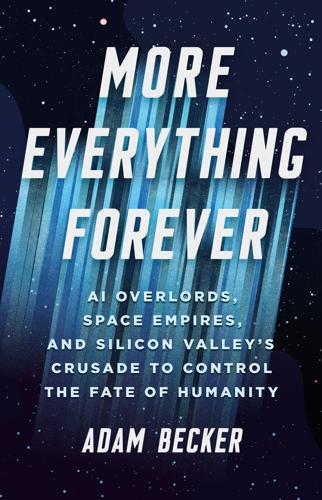
More Everything Forever: AI Overlords, Space Empires, and Silicon Valley's Crusade to Control the Fate of Humanity
by
Adam Becker
Published 14 Jun 2025
Adams and Gregory Laughlin, “A Dying Universe: The Long-Term Fate and Evolution of Astrophysical Objects,” Reviews of Modern Physics 69, no. 337 (April 1, 1997), https://journals.aps.org/rmp/abstract/10.1103/RevModPhys.69.337. 93 Nick Bostrom, “Astronomical Waste: The Opportunity Cost of Delayed Technological Development,” Utilitas 15, no. 3 (2003): 308–314, https://nickbostrom.com/astronomical/waste (emphasis in the original). 94 Ord, Precipice, 233–235. 95 Stuart Armstrong and Anders Sandberg, “Eternity in Six Hours: Intergalactic Spreading of Intelligent Life and Sharpening the Fermi Paradox,” Acta Astronautica 89 (August–September 2013): 1–13, https://doi.org/10.1016/j.actaastro.2013.04.002. 96 Ibid. 97 Anders Sandberg, Eric Drexler, and Toby Ord, “Dissolving the Fermi Paradox,” arXiv:1806.02404v1 (June 6, 2018), https://doi.org/10.48550/arXiv.1806.02404. 98 Annalee Newitz, Scatter, Adapt, and Remember: How Humans Will Survive a Mass Extinction (New York: Doubleday, 2013), 252. 99 There’s also a question of how to trust the AGIs in the probes themselves.
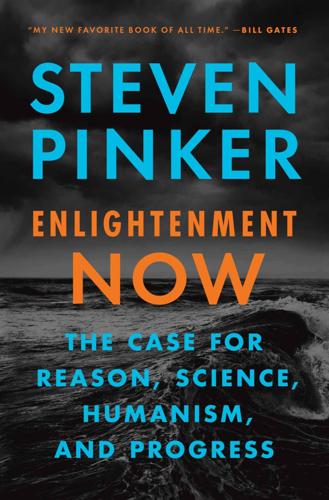
Enlightenment Now: The Case for Reason, Science, Humanism, and Progress
by
Steven Pinker
Published 13 Feb 2018
In this Promethean narrative, humanity has wrested deadly knowledge from the gods, and, lacking the wisdom to use it responsibly, is doomed to annihilate itself. In one version, it is not just humanity that is fated to follow this tragic arc but any advanced intelligence. That explains why we have never been visited by space aliens, even though the universe must be teeming with them (the so-called Fermi Paradox, after Enrico Fermi, who first wondered about it). Once life originates on a planet, it inevitably progresses to intelligence, civilization, science, nuclear physics, nuclear weapons, and suicidal war, exterminating itself before it can leave its solar system. For some intellectuals the invention of nuclear weapons indicts the enterprise of science—indeed, of modernity itself—because the threat of a holocaust cancels out whatever gifts science may have bestowed upon us.
…
See under food and food security Fanon, Frantz, 39–40, 405 FARC guerrillas, 158 Fariss, Christopher, 207 fascism and decline of democratic governments, 200 Italian, 445, 446 neo-fascism, 419, 448, 451 Nietzsche as inspiring, 445, 448 populism and, 448, 491n118 See also Nazi Germany fatalism about accidents, 185 from consuming negative news, 42 from environmentalism, 121 from the Negativity bias, 47 from warnings of existential threats, 292 fate denial of among successful forecasters, 370 as refuted by scientific revolution, 24, 394 “spirituality” as belief in, 434 See also fatalism; purpose, absence of in nature female genital mutilation, 222 Fermi Paradox, 308 Feshbach, Herman, 308 Feynman, Richard, 390 Finkelhor, David, 229 Finland, 115, 457n8, 475n30, 489n68 fire and smoke deaths, 182–3, 182 Fischer, Claude, 274–5, 475n46 fisheries, 325 Flanders & Swann, 15 Flannery, Tim, 465n76 Flaubert, Gustave, 284 Fleming, Alexander, 63 flood control, 188 Florey, Howard, 64 Flynn effect, 240–45, 241 atheism and, 438 Flynn, James, 240, 243, 244 Foege, William, 64, 65 Fogel, Robert, 68–9 Follett, Chelsea, 93 Fonda, Jane, 147–8 Fontane, Theodor, 284 food and food security, 19, 68–78, 70–73 achievement of, as energy capture, 23–4 nutritional quality and IQ rise, 241–2 obesity epidemic, 69, 117 undernourishment, 70–72, 71–2 See also agriculture —DIET diversification of, 259–60 of hunter-gatherers, 23 toxic, danger of (omnivore’s dilemma), 167 —FAMINE, 68–9, 72–4, 73, 78 and fear of population explosion, 73–4 governments exacerbating, 78, 459nn35–36 nuclear winter as producing, 308 in twentieth century, 72–3, 78, 459n36 Ford, Gerald, 275 forecasting tournaments, 368–71, 380, 393, 404 foreign aid, 95 Forster, E.
…
See economic inequality; equal rights infectious disease, 62–7, 66 and bioterrorism, difficulty with, 306–7 eradication and control of, 63–7, 66, 307 germ theory of, 63, 83 and life expectancy setbacks, 55 pandemics, falsely predicted, 307 preindustrial poverty and, 80 See also health; health care; life expectancy; medicine; vaccines; specific diseases information, 19–21 accumulated in genome during evolution, 20, 21 accumulated in neural activity, 20–21 as basic constituent of the universe, 20 economic measures difficult to apply to, 332–3 as reduction in entropy, 19–20 science as depending on, 391–2 second machine age and, 330–32 unknown to Enlightenment thinkers, 14, 386 Inglehart, Ronald, 124, 224, 340, 491n106 Inhofe, James, 387 innumeracy as human nature, 26 ideological, 48, 191 and political ideologies, 360–61 Inquisition, 442 institutions, human, 28 declining trust in, 29, 438, 456n1 development of, and creation of wealth, 83–4 and hope for progress, 12 humanist ideals inspiring, 411–12 integrity of, and emancipative values, 228 loss of faith in, anxiety and, 286 populism and disdain for, 333–4 populist power limited via, 337–8 See also commerce; government; trade; university and college education insurance, social spending as, 110 intellectuals and consumerism, double standard about, 247–8 dictator fanship of (tyrannophilia), 445, 446–7 Enlightenment, ambivalence toward, 29–30, 249 and equal rights, denial of advancements in, 215 ideological innumeracy and, 48, 191 and industrial work, rejection of, 92–3 IQ tests rejected by, 243 leftist tilt of, 372–3 Negativity bias and, 48–9 Nietzsche as influence on, 445, 446–7, 452 perception of social isolation and loneliness, 274 pessimism equated with moral seriousness, 49 romance with Marxism, 363, 372 and romantic militarism, 165–6 as Second Culture, 33–4, 389–90, 456n12 and skepticism regarding progress, 39–40, 456n1 standard of living, disdain for, 34 Trumpism inadvertently encouraged by, 343, 447–50, 491n118 See also academia; declinism; faitheism; pessimism; romantic heroism; Romanticism; science, disdain for intelligence and the cognitive niche, 22–3 Fermi Paradox, 308 general intelligence factor (g), 242 misperception about, causing fear of AI, 296–8 networks of neurons and, 21 subtypes of, 242 See also Flynn effect; knowledge; reason Intelligence Advanced Research Projects Activity, 367–8 Intelligence Quotient (IQ), rise in.
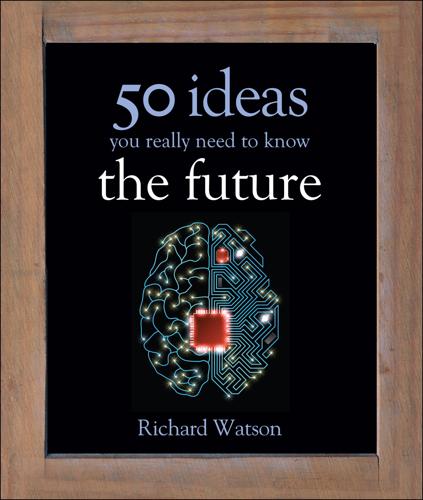
50 Future Ideas You Really Need to Know
by
Richard Watson
Published 5 Nov 2013
SETI would then seek to confirm the signal before looking for external and independent verification. If the communication were proven to be real, a telegram (not an email or SMS) would then be sent to the Central Bureau for Astronomical Telegrams, then there would be a press conference. At least that’s the theory. Second, and perhaps more importantly, we need to consider the Fermi Paradox. Enrico Fermi was an Italian scientist who came up with a simple idea concerning intelligent life on other planets. Namely, that while the sheer size and ancient age of the known universe implies that other intelligent and technologically advanced life forms exist, there has never been any observable evidence that they do.
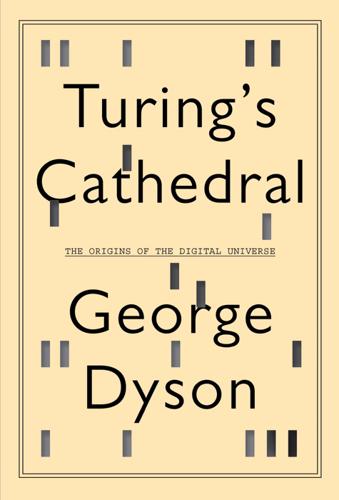
Turing's Cathedral
by
George Dyson
Published 6 Mar 2012
“The whole implosion idea—that is, that one can get densities considerably greater than normal—came from a visit from von Neumann,” he told me. “We proposed that together to Oppenheimer. He at once accepted.”23 With the hydrogen bomb out of the way, I mentioned that I was interested in the status of the Fermi paradox after fifty years. “Let me ask you,” Teller interjected, in his thick Hungarian accent. “Are you uninterested in extraterrestrial intelligence? Obviously not. If you are interested, what would you look for?” “There’s all sorts of things you can look for,” I answered. “But I think the thing not to look for is some intelligible signal.… Any civilization that is doing useful communication, any efficient transmission of information will be encoded, so it won’t be intelligible to us—it will look like noise.”
…
Darwinian and lateral gene transfer, 12.1, 12.2 and parasitism, 12.1, 12.2 reversal of stagnation of ultimate goal of see also Barricelli, Nils Aall; language(s); stellar evolution explosives (chemical), 4.1, 4.2, 8.1, 16.1 Extrapolation, Interpolation, and Smoothing of Stationary Time Series (Wiener, 1942) extraterrestrial life and intelligence, 12.1, 15.1 Facebook, 17.1, 17.2, 17.3 Farnsworth, Philo (1906–1971), 5.1, 5.2, 5.3 FBI (Federal Bureau of Investigation, U.S.), 5.1, 11.1, 18.1 feedback, negative Fejér, Leopold Fekete, Michael (1886–1957), 4.1, 18.1 Fell, Frank E. Fellner, William Fels, Samuel, 5.1, 5.2 Fenwick, John Fermi, Enrico (1901–1954), 5.1, 10.1, 11.1, 11.2, 11.3, 11.4, 11.5, 12.1, 14.1, 15.1 Fermi paradox Ferranti Mark 1 (computer) Feynman, Richard (1918–1988), prf.1, 4.1 Fine, Henry Burchard Fine Hall (Princeton University), 3.1, 3.2, 3.3, 3.4, 4.1, 4.2, 6.1, 13.1, 13.2 as interim home for IAS finite differences Finletter, Thomas K. firing table(s), see ballistics First Draft of a Report on the EDVAC (1945), 5.1, 8.1, 9.1, 13.1 Fish (cryptographic machines) fission (nuclear), 10.1, 10.2, 10.3, 13.1 FitzRandolph, Benjamin Fjørtoft, Ragnar (1913–1998) Flammarion, Camille Fleming, John Ambrose Flexner, Abraham (1866–1959) appointed first director of IAS childhood and education on education and scholarship, 3.1, 3.2, 3.3, 3.4 and founding of IAS, 3.1, 3.2, 4.1, 4.2, 6.1 and Gödel, 4.1, 6.1 on IAS history on medical education on profits and research, 3.1, 8.1 on prostitution resignation from IAS (1939), 3.1, 6.1, 18.1 and Oswald Veblen, 3.1, 6.1 and von Neumann, 3.1, 4.1, 4.2, 10.1 Flexner, Moritz Flexner, Simon (1863–1946) FLINT (floating point interpretive routine) floating-point arithmetic, 10.1, 18.1 Flowers, Thomas H. (1905–1998) Ford, Vincent, 4.1, 14.1 formal systems, 4.1, 6.1, 13.1, 13.2 Forrester, Jay Fraenkel, Abraham Frankel, Stanley P. (1919–1978), 1.1, 4.1, 5.1, 5.2, 10.1, 11.1, 11.2 on von Neumann and Turing Frankfurter, Felix Franklin, Rosalind (1920–1958), 8.1, 12.1, 15.1 Franklin Institute Friedman, Milton Friends’ Ambulance Unit Frost, Robert, 18.1, 18.2 Fuchs, Klaus (1911–1988), 11.1, 11.2 Fuld, Carrie Bamberger (1864–1944), 3.1, 6.1 Fuld, Felix, 3.1, 6.1 Fuld Hall (IAS), 3.1, 4.1, 6.1, 6.2, 7.1, 8.1, 9.1, 9.2, 11.1, 18.1, 18.2, 18.3 functions (computable and noncomputable), 4.1, 13.1, 13.2 game theory, 4.1, 4.2, 15.1, 16.1, 18.1 Gamow, George (1904–1968) Gandy, Robin (1919–1995) garbage disposal (“electric pig”) Gardner, Trevor Gaure, Simen Geheimschreiber (cryptographic machine) Gell-Mann, Murray General Advisory Committee (Atomic Energy Commission), 1.1, 11.1, 11.2 general circulation (climate) models, 9.1, 18.1 General Education Board (Rockefeller Foundation) genetics, see codes and coding, genetic Geophysical Fluid Dynamics Laboratory (Princeton University) Georgic Gilbarg, Norma Gillon, Paul N., 5.1, 5.2 Gödel, Adele Nimbursky (née Porkert) Gödel, Kurt (1906–1978), 4.1, 6.1, 7.1, 8.1, 12.1, 13.1, 13.2, 13.3, 15.1, 15.2 ailments of, 6.1, 6.2 appointment(s) at IAS, 6.1, 6.2 and beginnings of ECP citizenship paradox and visa problems on the continuum hypothesis death, in Princeton (1978) and the draft board and the Entscheidungsproblem, 6.1, 15.1, 18.1 escape from Europe via Russia and Japan, (1940) and foundations of mathematics on higher meaning incompleteness (and undecidability) 4.1, 6.1, 10.1, 12.1, 13.1, 13.2, 13.3 and Leibniz, 6.1, 6.2, 18.1 and numerical addressing and rotating universe and stored-program computing, 6.1, 6.2 and Turing computability, 6.1, 6.2, 13.1 and von Neumann, 4.1, 6.1, 6.2, 6.3, 8.1, 13.1, 18.1 Gödel numbering, 6.1, 6.2 Goldenfeld, Nigel Goldstine, Adele, 7.1, 10.1 Goldstine, Herman H. (1913–2004), 3.1, 5.1, 5.2, 5.3, 7.1, 8.1, 9.1, 10.1, 16.1, 18.1, 18.2 on algorithms and Bigelow, 7.1, 8.1, 14.1, 15.1 and ECP, 5.1, 5.2, 6.1, 7.1, 7.2, 7.3, 8.1, 8.2, 8.3, 8.4, 8.5, 14.1, 15.1, 18.1, 18.2 and EDVAC and the ENIAC, 5.1, 5.2, 10.1, 18.1 and IBM on name MANIAC on patent rights on Oswald Veblen, 3.1, 3.2, 6.1 on von Neumann, 4.1, 4.2, 4.3, 5.1, 5.2, 7.1, 10.1 on von Neumann and Turing, 13.1, 13.2 Gomory, Ralph Good, Irving John (Jack, 1916–2009), 8.1, 13.1, 13.2, 13.3, 13.4, 14.1 on computer as refrigerator on ultraintelligent machine Google, 16.1, 16.2, 17.1, 17.2, 17.3 Gore, Albert (Sr.)
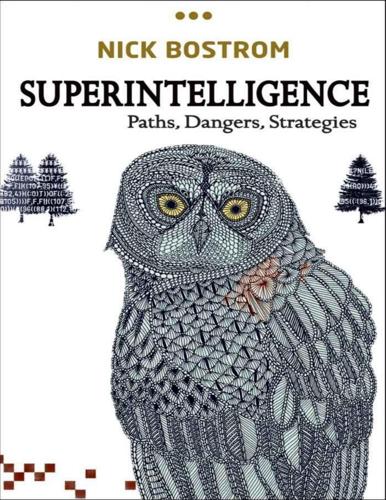
Superintelligence: Paths, Dangers, Strategies
by
Nick Bostrom
Published 3 Jun 2014
Oxford: Future of Humanity Institute, University of Oxford. Armstrong, Stuart. 2013. “General Purpose Intelligence: Arguing the Orthogonality Thesis.” Analysis and Metaphysics 12: 68–84. Armstrong, Stuart, and Sandberg, Anders. 2013. “Eternity in Six Hours: Intergalactic Spreading of Intelligent Life and Sharpening the Fermi Paradox.” Acta Astronautica 89: 1–13. Armstrong, Stuart, and Sotala, Kaj. 2012. “How We’re Predicting AI—or Failing To.” In Beyond AI: Artificial Dreams, edited by Jan Romportl, Pavel Ircing, Eva Zackova, Michal Polak, and Radek Schuster, 52–75. Pilsen: University of West Bohemia. Retrieved February 2, 2013.
…
Intricate Ethics: Rights, Responsibilities, and Permissible Harm. Oxford Ethics Series. New York: Oxford University Press. Kandel, Eric R., Schwartz, James H., and Jessell, Thomas M., eds. 2000. Principles of Neural Science. 4th ed. New York: McGraw-Hill. Kansa, Eric. 2003. “Social Complexity and Flamboyant Display in Competition: More Thoughts on the Fermi Paradox.” Unpublished manuscript, archived version. Karnofsky, Holden. 2012. “Comment on ‘Reply to Holden on Tool AI.’” Less Wrong (blog), August 1. Kasparov, Garry. 1996. “The Day That I Sensed a New Kind of Intelligence.” Time, March 25, no. 13. Kaufman, Jeff. 2011. “Whole Brain Emulation and Nematodes.”
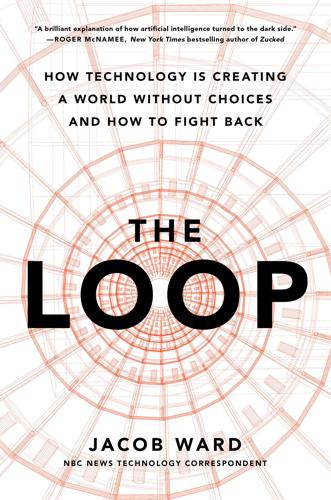
The Loop: How Technology Is Creating a World Without Choices and How to Fight Back
by
Jacob Ward
Published 25 Jan 2022
Law, Probability and Risk, 5(1):1–18. doi: 10.1093/lpr/mgl012 5. http://cdn.arstechnica.net/wp-content/uploads/2015/10/game ofwar.pdf 6. www.facebook.com/games/query/top-grossing/ 7. DoubleDown Interactive Co., Ltd. (2020). 2019 F-1, p. 85, www.sec.gov/Archives/edgar/data/1799567/000119312520158606/d753829 df1.htm 8. Carroll-Nellenback, J., Frank, A., Wright, J., Scharf, C. (2019). The Fermi Paradox and the Aurora Effect: Exo-civilization settlement, expansion, and steady states. The Astronomical Journal, 158(3):117. doi: 10.3847/1538-3881/ab31a3 9. Scharf, C.A. (2014, March 20). The unstoppable extinction and Fermi’s paradox. Scientific American, https://blogs.scientificamerican.com/life-unbounded/the-unstoppable-extinction-and-fermie28099s-paradox/
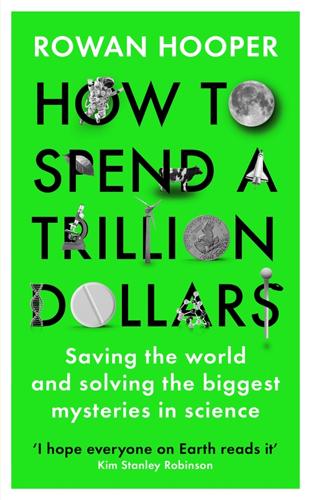
How to Spend a Trillion Dollars
by
Rowan Hooper
Published 15 Jan 2020
Monthly Notices of the Royal Astronomical Society 489(4), 5231–5243. DOI: 10.1093/mnras/stz2280 25 Devin Powell (2013) ‘The Drake equation revisited: interview with planet hunter Sara Seager’. www.space.com/22648-drake-equation-alien-life-seager.html 26 Anders Sandberg et al. (2018) ‘Dissolving the Fermi paradox’. https://arxiv.org/abs/1806.02404 CHAPTER 7: REDESIGN OUR PLANET 1 Donald Olson et al. (2004) ‘The blood-red sky of The Scream’. APS News 13(5). www.aps.org/publications/apsnews/200405/backpage.cfm 2 Fiona Harvey (2019) ‘UN climate talks failing to address urgency of crisis, says top scientist’. www.theguardian.com/environment/2019/dec/08/un-climate-talks-are-failing-to-see-urgency-of-crisis-says-scientist 3 Ian Joughin et al. (2014) ‘Marine ice sheet collapse potentially under way for the Thwaites Glacier basin, West Antarctica’.
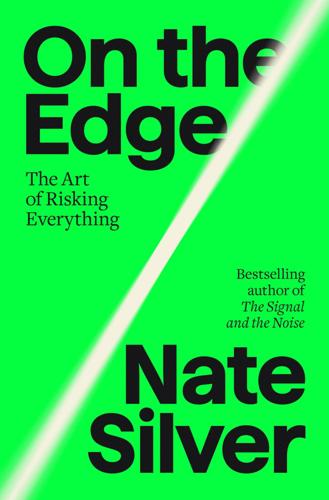
On the Edge: The Art of Risking Everything
by
Nate Silver
Published 12 Aug 2024
For instance, increased global warming causes more glaciers to melt, which causes further warming by reducing the reflectivity of the Earth’s surface. A feedback loop can also be called a virtuous cycle or a negative cycle depending on whether the effects are seen as positive or negative. Fermi paradox: The question of why humans have not yet detected extraterrestrial life despite the vastness of the universe. Under some interpretations, it suggests civilizations may not endure long enough to be detectable across space. Named after the Italian physicist Enrico Fermi, who famously inquired, “Where are they?”
…
GTO strategies, 47, 65–67, 71–72, 508n, 509n Hellmuth’s use of, 99 Selbst’s use of, 68–70 solvers and, 78–79 exploration, 220–22, 227, 232–33, 235, 243 externalities, 261, 484 F Facebook, 267, 268 fade (gambling), 484 Fairchild, Sherman, 257 “Famine, Affluence and Morality” (Singer), 357, 358 fantasy sports, 198, 199, 483 Farren, Conor, 201, 203 fat-tailed distributions, 491 Fauci, Anthony, 350 fearlessness, 6, 112–13, 115 feedback loops, 484–85 feel players (poker), 485 Feldman, Ryan, 84 Fermat, Pierre de, 22 Fermi paradox, 485 finance alpha, 241–42, 478 Bid-Ask spread, 444, 479 calmness and, 222 contrarianism and, 240–42 Global Economic Crisis (2007–2008), 30 hedge funds, 21, 27, 112, 239, 240–41, 249, 486 independence and, 239 inside information and, 197n Midriver and, 21, 489 moral hazard and, 261 optionality, 76 options trading, 318–21 risk impact and, 90–91 sports betting terminology and, 175 See also venture capital first strike (nuclear war), 485 fish (gambling), 201, 485 See also whales FiveThirtyEight, 13–14, 16–17, 27, 137, 211n, 254, 373 flip (poker), 485 Flood, Merrill, 52, 494 flop (poker), 41, 70–71, 485 flush (poker), 485 Flynn, Carrick, 342, 343, 374, 403 focal points, 327–34, 403, 485 fold (poker), 485 Foley, Mark, 13 FOMO (fear of missing out), 313, 485 foom (AI), 485 Foot, Philippa, 345, 499 football, 219–20, 221, 230–31 See also sports betting Fortune’s Formula (Poundstone), 396 founders accelerators and, 405–6, 477 asymmetric odds and, 255, 277 autism and, 282 contrarianism and, 403 as degens, 278–80 disagreeability and, 280–82 discrimination and, 287–90 luck and, 252–53, 280 optimism and, 413, 539n resentment and, 223, 277 risk ignorance and, 247–48, 264, 265, 266 risk tolerance and, 247–48, 251, 252, 264–65, 337, 403 self-made wealth and, 276–77 Silicon Valley history and, 256–57, 265 small disrupter myth and, 269–70 vs. venture capital, 251–52, 255, 263–66, 264 See also Bankman-Fried, Sam; Musk, Elon fox/hedgehog model AI existential risk and, 413–14, 423, 446–48, 457 defined, 485, 486 risk-taker attributes and, 236 River-Village conflict and, 267n Silicon Valley and, 263–66, 264, 271–72, 414 sports betting and, 447 Francis (Pope), 478 freeroll (gambling), 485 free speech, 29, 522n French Revolution, 469 frequentism, 481 friction, 167, 485 Friedman, Bill, 162–63 Friedrich, Stephen, 95–96 FTX.
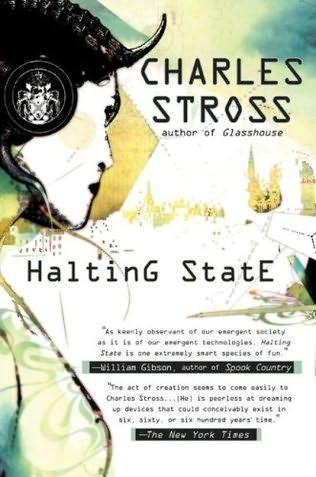
Halting State
by
Charles Stross
Published 9 Jul 2011
Someday everyone is going to live their lives out in places like this, vacant bodies tended by machines of loving grace while their minds go on before us into strange spaces where the meat cannot follow. You can see it coming, slamming towards you out of the future, like the empty white static that is all anyone has ever heard from beyond the stars: a Final Solution to the human condition, an answer to the Fermi paradox, lights on at home and all the windows tightly shuttered. Because it’s a thing of beauty, the ability to spin the cloth of reality, and you’re a sucker for it: Isn’t story-telling what being human is all about? And then your claws click down on cobble-stones and the horizon implodes into the uneven Tudor timber-framed frontages of the high street in Vhrana.
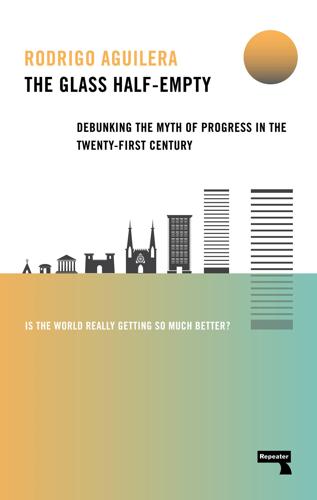
The Glass Half-Empty: Debunking the Myth of Progress in the Twenty-First Century
by
Rodrigo Aguilera
Published 10 Mar 2020
Parting from that cyber-epiphany, that as it goes from human to super-human intelligence it would also use its exponentially expanding capabilities to achieve this goal — and almost certainly succeed eventually, as the AI box experiment showed. Perhaps this is the fate of most if not all intelligent species in the universe, which may convincingly explain the Fermi Paradox (why we have not encountered intelligent alien life despite the near-100% probability that it exists). Then again, perhaps if we were governed under a less rapacious, more socially conscious framework for human existence, we wouldn’t even be considering the threat of AI as an existential one. What Carl Sagan theorized about extraterrestrial life may well apply to a noble AI: Perhaps all societies significantly more advanced than our own have achieved an effective personal immortality, and lose the motivation for interstellar gallivanting - which may, for all we know, be a typical urge only of adolescent civilizations.
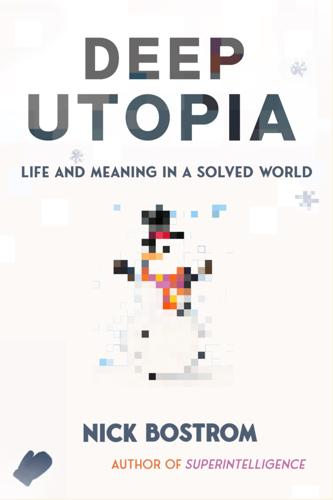
Deep Utopia: Life and Meaning in a Solved World
by
Nick Bostrom
Published 26 Mar 2024
Unpublished manuscript. https://longtermrisk.org/reducing-risks-of-astronomical-suffering-a-neglected-priority/ Aquinas, T. [1274] 1947. Summa Theologica (Fathers of the English Dominican Province, Trans.; Vol. 1). New York: Benziger Brothers. Armstrong, S., & Sandberg, A. 2013. “Eternity in six hours: Intergalactic spreading of intelligent life and sharpening the Fermi paradox”. Acta Astronautica, 89, 1–13. Audi, R. 2005. “Intrinsic Value and Meaningful Life”. Philosophical Papers, 34(3), 331–355. Bacon, F. [1626] 1915. New Atlantis (A. B. Gough, Ed.). Oxford: Clarendon Press. Bartels, M. 2015. “Genetics of Wellbeing and Its Components Satisfaction with Life, Happiness, and Quality of Life: A Review and Meta-analysis of Heritability Studies”.

Revelation Space
by
Alastair Reynolds
Published 1 Jan 2000
'That's always been a major paradox, you know. On paper, life looks a lot commoner than we find it to be. Theories for the developmental timescales for tool-using intelligence are a lot harder to quantify, but they suffer from much the same problem. They predict too many cultures.' 'Hence the Fermi paradox,' Pascale said. 'The what?' asked Khouri. 'The old dichotomy between the relative ease of interstellar flight, especially for robotic envoys -and the complete absence of any such envoys turning up from non-human cultures. The only logical conclusion was that no one else was around to send them, anywhere in the galaxy.'
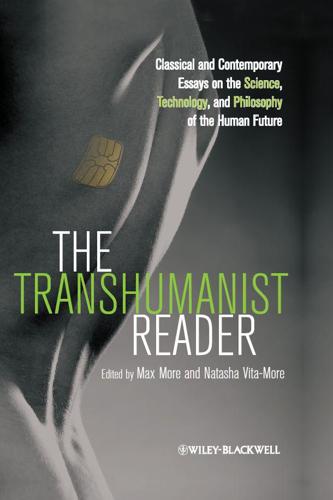
The Transhumanist Reader
by
Max More
and
Natasha Vita-More
Published 4 Mar 2013
I think there are some things that we can predict with a reasonable degree of confidence beyond the singularity. For example, that the superintelligent entity resulting from the singularity would start a spherical colonization wave that would propagate into space at a substantial fraction of the speed of light. (This means that I disagree with Vinge’s suggestion that we explain the Fermi paradox by assuming that “these outer civilizations are so weird there’s no way to interact with them.”) Another example is that if there are multiple independent competing agents (which I suspect there might not be) then we would expect some aspects of their behavior to be predictable from considerations of economic rationality.

Why the West Rules--For Now: The Patterns of History, and What They Reveal About the Future
by
Ian Morris
Published 11 Oct 2010
“Cost of Tackling Global Climate Change Has Doubled, Warns Stern,” The Guardian, June 26, 2008 (http://www.guardian.co.uk/environment/2008/jun/26/climatechange.scienceofclimatechange). Some economists (for example, Nordhaus 2007) are critical, but an Australian report (Garnaut 2008) has reached similar conclusions to Stern. Nonstate organizations: T. Friedman 1999, van Creveld 1999. Energy issues: Smil 2006. Fermi Paradox: E. Jones 1985, Webb 2002. Search for extraterrestrials: Impey 2007, P. Davies 2010. Million civilizations: Shklovskii and Sagan 1968, p. 448. Drake’s Equation: http://en.wikipedia.org/wiki/Drake_equation. High-tech weapons: Adams 2008, Singer 2009. Extinctions: Thomas et al. 2004. Sixth great extinction: Leakey and Lewin 1995.
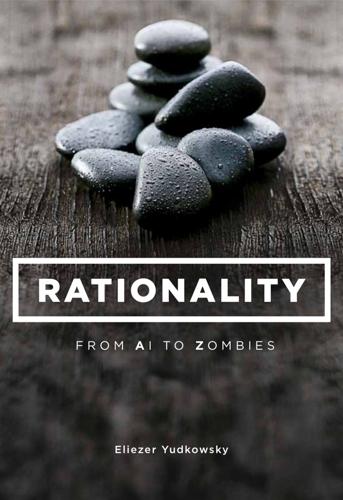
Rationality: From AI to Zombies
by
Eliezer Yudkowsky
Published 11 Mar 2015
This is the fallacy of “gaps in the fossil record”—fossils form only rarely; it is futile to trumpet the absence of a weakly permitted observation when many strong positive observations have already been recorded. But if there are no positive observations at all, it is time to worry; hence the Fermi Paradox. Your strength as a rationalist is your ability to be more confused by fiction than by reality; if you are equally good at explaining any outcome you have zero knowledge. The strength of a model is not what it can explain, but what it can’t, for only prohibitions constrain anticipation. If you don’t notice when your model makes the evidence unlikely, you might as well have no model, and also you might as well have no evidence; no brain and no eyes